FAM Tour – czyli Samsung w dobie 5G, rozmawiamy z DJ Koh
Ubiegły tydzień spędziłem w Korei. Udałem się tam na zaproszenie firmy Samsung na konferencję dotyczącą przyszłości Samsunga w dobie 5G, która odbywała się w Seulu. Miałem zamiar opisać cały wyjazd w sierpniowym wydaniu iMagazine, ale szkoda czekać aż tyle czasu, skoro dopiero co wyszedł numer lipcowy, a mi udało się porozmawiać bezpośrednio z DJ Koh, CEO Samsung Electronics. Zapraszam do relacji ze spotkania i podsumowania wyjazdu.
Trzydniowy grafik mieliśmy bardzo zajęty i skrupulatnie zaplanowany. Od wczesnego rana uczestnicy konferencji, było nas w sumie około 30 osób z różnych redakcji w Europie, z czego z Polski z czterech, uczestniczyliśmy w spotkaniach z najważniejszymi managerami i dyrektorami z Samsunga odpowiedzialnymi za R&D, dizajn, audio, poszczególne modele telefonów czy technologię 5G. Osobiście największe oczekiwania miałem względem sesji dotyczących 5G i audio oraz bezpośredniego spotkania z DJ Koh, CEO Samsung Electronics.
Prezentacje odbywały się w dwóch miejscach. Kampusach Samsunga oddalonych od centrum Seulu, gdzie mieszkaliśmy, o około 40 minut jazdy autokarem, w mieście Suwon. Kampusy są to „miasta w miastach”. W Samsung Digital City, pracuje i żyje tam ponad 30 tysięcy ludzi. W jednymi miejscu są tutaj biurowce, domy mieszkalne, szpital, park, świetnie rozbudowane centra rekreacji, sklepy itd. Tutaj znajduje się też największe i najważniejsze centrum R&D, w którym odbywała się konferencja.
Bonusem tego miejsca, jak się okazuje jedynym ogólnodostępnym, jest SIM, czyli Samsung Innovation Museum. Z tego co nam powiedziano, na wejście do muzeum innowacji/technologii na terenie miasteczka Samsunga po wykupieniu biletów czeka się około miesiąca. Muzeum jest świetnie przygotowane, interaktywne. Oczywiście wykorzystuje najnowsze technologie Samsunga, takie jak np. przeźroczyste, dotykowe wyświetlacze, za którymi są ukryte eksponaty, ale nie ogranicza się tylko do jednej słusznej marki. Jest to prawdziwe, z krwi i kości muzeum techniki, w którym znajdziemy najważniejsze epokowe odkrycia, zaczynając od oryginalnego, pochodzącego z przełomu XVIII i XIX wieku ogniwa Volty.
Wracając do prezentacji. Wytypowane przeze mnie sesje były bardzo ciekawe. Nie zawiodłem się. Bardzo dużo informacji było przekazanych podczas wykładów o 5G, o tym jak rozwijana jest infrastruktura, o tym jak będą wykorzystywane rozwiązania oparte o 5G. Mogliśmy zobaczyć, oczywiście w skali, jak działa „smartcity” skomunikowane przy użyciu technologii 5G. W trakcie prezentacji otrzymaliśmy do testów na czas pobytu w Seulu, Samsunga Galaxy S10 5G, żeby przetestować na żywo jak działa w Korei pierwsza testowa, ale dostępna już komercyjnie sieć 5G. O jej możliwościach napiszę w osobnym artykule.
Sesja dotycząca audio obrazowo uświadomiła jak ważne jest nie tyle skomponowanie, co odpowiednie „zaprojektowanie” wszystkich dźwięków w urządzeniach (nie tylko w telefonach) i ich wpływ na użytkowników.
Jednak najciekawszym, jak się można było spodziewać, było osobiste spotkanie z DJ Koh. CEO w kontakcie bezpośrednim jest bardzo otwartym człowiekiem. Nie ma dystansu i można z nim swobodnie rozmawiać, nawet na „trudne” tematy. Nie uchyla się od odpowiedzi, chętnie i ciekawie snuje opowieści. Ponieważ były wątpliwości odnośnie jego słów, postanowiłem opublikować transkrypt zapisu naszych rozmów. Żeby nie było też wątpliwości w kwestii zmiany znaczenia wypowiedzi podczas tłumaczenia, zostawiam słowa DJ Koh w oryginale – zakładam, że większość z Was, naszych czytelników, nie ma problemu z językiem angielskim. Warto przeczytać całość, bo jest tam wiele ciekawych informacji, których normalnie nigdzie nie znajdziemy.
Rozmowa miała charakter sesji Q&A. Pytania zadawaliśmy my, dziennikarze, na wszystkie odpowiadał osobiście DJ Koh, CEO Samsunga. Spotkanie było podzielone na dwie osobne sesje. Choć rozmowa miała dość luźny charakter, to był to jedyny moment w trakcie spotkania, kiedy mogliśmy spytać się o co chcieliśmy i uzyskać autoryzowaną, oficjalną odpowiedź.
Q: What is your view on the trade war? Fernando Labrador EFE, SPAIN
A: Regarding the global trade war, it’s not appropriate for me to comment. When those kinds of things happen, I let my team know ‘do not leverage this kind of situation for our business.’ Regardless of what’s going on with certain companies, if we leverage intentionally, I don’t think it’s the right way. Our partners and customers understand, and they will make their own decisions. Trade wars could happen. When certain economic shifts, such as trade wars do change the environment, rather than leverage it, I must go my own way. Because I have vision and I have a mission and I have a long term roadmap. During Unpacked in February I defined, from this year to next ten years, our vision will be the innovator of new mobile experience that will flow with us seamlessly continuously. That I defined as the Samsung mobile vision.
Q: What is the status on Galaxy Fold? Is the issue addressed? John McCann, TECH RADAR, UK
A: When those things happen, I try to understand why this happened. We defined all those issues raised by reviewers. Some issues were funny. When those things happen, I always make focus on resolve and even find root causes. At the moment, more than 2,000 devices are being tested right now in all aspects.
So I will say, we defined all the issues, some issues we didn’t even think about it but thanks to our reviewers, mass volume testing is ongoing. When we can close it, we will announce it. Give us a bit more of time.
Q: In the past, it was Apple vs. Samsung, now it is Huawei involved too. Nowadays, who is your biggest competitor?
A: As of 2019, previous 10 years, it was an era of smartphone. From this year, maybe a new era is opening because emergence of IoT, 5G, AI, and all these technologies mingle together…so the new era is in front of us. As I mentioned, I have my own long-term roadmaps on h/w, s/w, service based upon new technologies we face at the moment. Some areas three years, some areas five years, some areas seven years, but we have our own roadmap. So my focus is how can I complete it, how can I achieve it based upon my own roadmap. But I’m always watching what my neighbors are doing. Not only these two companies but other companies as well. So if there are anything necessary I need to learn, I will learn it. Rather than competitors or who involved in IT industry, if there is anything I can learn from them I must learn it. I like to learn. Rather than paying attention to what other competitors are doing, I need to focus on my own roadmap. There are lots of factors I need to consider such as our partners, customers, also our employee education and preparation for futures.
Q: Comparison between the Note7 vs. the Galaxy Fold? Anthony Cuthbertson, THE INDEPENDENT, UK
A: Difference is crystal clear. For Galaxy Fold, it was before launch. But Note7 was after launch. Note7 root cause was battery and it was related to consumer safety. At that time, we lost six billion dollars including opportunity costs. But what I decided with the Note7, I want to make six billion dollars not a cost but investment.
For Galaxy Fold, when we gave it to previewers, something was happening. So issues with Galaxy Fold and Note7 are completely different. It’s not safety for Galaxy Fold but quality. But the common theme between the two devices is when we create a new form factor or when we innovate a new one. With Galaxy Fold, this is another challenge and innovation creating a new form factor. I do admit I missed something on the foldable phone, but we are in the process of recovery as I mentioned regarding a heavy volume of testing.
Q: Are you going to invest more in 5G infrastructures outside of Korea?
A: We are working not only in Korea, but we’re already working in the US. I do not want to mention all the carriers’ names but we are already moving there, and tests and services have already happened with some other operators in the United States. We are working on it, even in India, discussions are ongoing. We had a prototype trial in Europe.
Q: Okay, maybe I should have said more in this question. The two most important things for the questions are – Europe and tomorrow. Are you going to invest more on Europe?
A: We have R&D operations in Poland and in the UK and some other areas. Not only mobile but network operations. We have a big operation in Europe, so there is no reason to say that we are not willing to invest in Europe. Last week I was in Europe to find out the possibility to diversify and expand the 5G network infrastructure.
Q: For 5G, share your vision on what the real impact can be in our lives – a concrete, meaningful example.
A: Key differences between 4G and 5G are speed, latency, capacity. Compared to 4G, 5G is 20 times faster speed, latency is less than 1ms, and capacity is 10 times bigger.
To understand 5G properly, we need to understand AI together.
Today, everyone is talking about the 4th revolution. The infrastructure of 5G will be the engine and power of the 4th revolution. To understand this deeply, we need to understand AI.
Last 15 years, what happened, companies keep developing and developing GPU.
10 years ago, CPU size was big but today CPU size is very tiny. Size of GPU area increased.
Secondly, Big Data analysis. Amazon, Facebook, Google, MS, etc., they invest a lot on Big Data processing. Because they have big data, they have to able to handle it. But ironically, GPU technology theory and Big Data analysis theory are same.
Last five years, Machine Learning algorithm accelerated.
These are the core theory of AI. H/W is supported and new algorithm added and then on top of it, you add statistics. This completes AI.
When AI is featured with 5G, we must think about IoT. Even before, everyone was talking about IoT. But nothing has happened yet in our life. IoT should connect everything such as individuals, homes, factories, offices, buildings, cities and nations. And automobiles will be the connector of all of these. With 4G, real IoT couldn’t be implemented but with 5G, it’s time to use 5G technology in real life. If we narrow down what is happening in our real life, you have a device and when you go into a car, the car will understand that you have the device because of motion algorithms and such. When you go to an office, you can have the same experience or productivity in your home or your office.
Another example is on VR/AR. With the 4G era, the screen quality is blurred with lots of latency. However, with 5G, the video screen and video streaming will be different.
So, 5G is in infrastructure and when it is mingled together with accumulated and sharpened AI technology, they will be lots of shining customer experiences we can have. That’s why before and after 2019 will be different. From now on and in 3 to 4 years, based on new technology changes bringing new experiences, we will bring much more impact.
Q: Bixby project, especially in Europe, and your view on voice assistant? Wojciech Piechocki, GSMONLINE.PL, Poland
A: Last year we introduced the new Bixby 2.0. We were investing in language extensions. But the point is whether these experiences can be accepted by our consumers or not, that’s the point. So, there is an opportunity. What kind of opportunity? Not only smartphones, but many IoT devices will be equals. When machine to machine communication is available, that’s the reason voice command, based upon machine learning, is very good. That is a very shining opportunity for Bixby. But there is also risk, because language extensions do take huge investment. Our aiming of Bixby is not like Google or Amazon. Our Bixby works with Amazon and Google. We are also working with Microsoft.
To deliver meaningful innovation – that is, immersive, intelligent, rich experiences for our end consumers – open innovation is necessary. Even though there are many opportunities, to minimize risks, we are going with open collaboration. And for our Note10, it will be another phase for Bixby.
Q: In terms of 5G handset, how many 5G handsets do you expect to launch this year? How many do you expect to launch next year and are they going to continue to be at the premium tier or are you looking to bring 5G connectivity down the series, maybe A range next year? Or is that too soon? John McCann, TechRadar, UK
A: Let me say, for example, right now in the Korean market, less than 87 days after we launched our 5G devices, in 80 days we’ve sold 1 million devices. The sale of 1 million devices is a good signal in terms of 5G deployment. If we go into detail, what this means is, even though Korea is a small country, our 5G network infrastructure is not 100%. In the first month, there were some struggles, but it got better and better. In the market, the mobile phones’ lifetime is extending. Three, four years ago, it was a year or a year and a half, longest period is 2 years, but now for the flagship devices, their lifespan is nearly 2.5 or even 3 years. So when they go to the store, and they want to buy a new phone, Carriers do not recommend customers flagship devices. Customers choose 5G devices. This is the reason why the Korean market for 5G device expanded so quickly.
In Europe, we already launched at EE and Deutsch Telecomm with 5G devices going out on July 2. Official launch is September 4. 1
In Switzerland, Swiss Comm already launched their 5G. They all have the same reason, why flagship device when they launch it, customers will think a year later, “Do I need to change? OK, I want to buy a 5G ready phone.” When carriers expand their 5G coverage, once customers have experienced their device for two, three years device, they will choose 5G devices. That means they expect much faster expansion than LTE era.
For example, in the Korean market, when 5G devices and affordable mid-range 5G devices come into the market, naturally there will be competition amongst carriers. So I am quite sure next year will be promising for 5G.
Q: Beyond folding screens, any innovation you see in smartphone devices? And if not, do you see end of smartphones? Anthony Cuthbertson, THE INDEPENDENT, UK
A: Foldable will last a couple of years. Another form factor is a possibility. I will say, once 5G and IoT era are available and expand quickly, we must think rather than smartphones, we must think smart devices. Smartphones may decline but new devices will emerge. Smart devices form factor can be put into, for example, a car or wearables.
There are many smart devices available, particularly for national security. Why? When 5G is supported, then we can expand those kinds of devices like camera. If we just say, what is next of form factor? We don’t limit to a smartphone but let us think about smart devices. This is a more appropriate answer.
That’s why voice command and Bixby, based upon machine learning and understanding my behavior, are very necessary.
So let us extend to smart devices, not just smartphones. 360 degree camera with 5G supported, that is a smart device.
Q: You spoke about 5G but this creates problems, and we are hearing calls from other tech companies about the need for more regulations. We saw GDPR a year ago in Europe, but do you still think that there is a need for more regulation in the tech industry or not?
A: Samsung focuses on regulations, safety and security. These are our top priorities, particularly when Note7 happened, we created a safety committee. Regarding GDPR, we also have an in-house committee, which I am directly involved in. We also have legal support from Belgium and other areas, and we are ready to follow EU’s policies. Maybe some other companies are already on it, but Samsung is working on it. On the topic of the security nowadays, Gen Z and younger generations are spending too much time on their smartphone and other smart devices, we’re looking at how we can protect and focus on their digital well-being. We may need to consider more on their digital well-being. Makes sense, no?
Q: Yes, it makes a lot of sense and it is something that has been talked about. But at the same time, Do you think that you, as a company, need the help from governments around the world to give you the regulations for you as a company to know what to do?
A: Today, certain countries are already seriously working on it. Particularly, in the security areas such as networks and devices. Because when the 5G environment comes, IoT devices in London, I remember seven, eight years ago there were around 300,000 cameras in London, there may even be more now. At that time, you can get low quality footage, but when 5G comes there may not be accidents on the road or burglaries. But when this environment is available, when software is hacked, that will cause a lot of troubles. So from now on, the security level of the 5G era should be emphasized and placed at a higher level. With Samsung, we have invested a lot in the security area called Knox, and it goes beyond devices, it also goes into networks.
Security is a continuous process. Once you add protections, maybe someone will attack it tomorrow, so it is hard work. For the 5G era, we will emphasize a much higher level of security protection. It is necessary by regulation.
Q: Are you planning to bring new technology into the mid-range devices?
A: When I introduced the mid-range A series, inside the mobile organization, S series was the flagship and the A series was the innovative product. Because three, four years ago, the technology was applied to the flagship, and after it stabilized, it went into the A series. But from last year, we changed our strategy. We first introduced the triple, quad camera in A series, as well as applying some new technologies. We call this an innovative product. So with A series, our focus is new technology creation and innovative features and functions, why not? We must go in, because A series is for the Gen Z and younger generation who cannot afford to buy the flagship model. So new technology and new experiences are targeted at A series first.
Q: The Facebook app is preinstalled in every phone that you sell, I am curious to know if you will be changing this given the controversy around Facebook privacy issues.
A: Even though the Facebook app is preloaded in our Samsung devices, they cannot enter our system. So maybe that when the problem happened, some companies preloaded their phones, they could control some areas. But everything is closed, even though it is a preloaded or downloaded app, they cannot access our system. Consumers can disable the app as well.
Q: In Samsung ecosystem (Samsung Health, Samsung Pay), it’s hard to see it making money. Rather it is a cost for now. Are you going to change it or expand it? Antonio Ortiz, WEBEDIA, Spain
A: Samsung is pursuing open innovation and open collaboration. We don’t want to do everything by ourselves. Key essential apps such as Samsung Pay and Samsung Pass, we do it ourselves. Even Bixby, there are collaborations with others. If you look at music, we work with Spotify globally. For media, our primary partner is Netflix. We want to make a win-win game with an existing ecosystem in the industry. Also regarding productivity, we are working with Microsoft. And with OS, we have a special relationship with Google. We are working with every company as long as we can deliver meaningful innovation and useful experiences to our end customers. Some areas such as horizontal areas like payment, security, we keep it our own, but for vertical, we are always open for partnership.
Q: We have been told that there’s been a concern with our environment at Samsung. According to some studies, particularly by Nature, the implementation of 5G, will increase the use of global power consumption by 5 to 10%, which has a direct impact to our climate. I wanted to know if there is something you can do about this as it has a real impact on our environment.
A: Actually, it’s not because of the 5G technology. Samsung has been investing a lot in this area. Six, seven years ago, with Galaxy S4, all packaging were made with recycled paper, no plastics used. Using zero plastic is very, very difficult.
Last four to five years, we are trying to minimize the use of plastics. In my office, I have no plastic bottles, we drink from glass cups. Even our Suwon factory, we have solar panels. We are trying to increase the use of renewable energy in the factory. We declared last year that we will extend it. Today, I do not want to say that 100% of Samsung is perfect regarding climate protection. But, even seven, eight years ago, Samsung has already invested in this area. We will keep doing it, and not only for our product, all our employees are involved in this clean earth movement.
Q: How will smartphones look in ten years?
A: When we foresee the next ten years, we must look back at the last ten years. Obviously, there is a difference compared to 2019. The difference is of the last ten years, it was the LTE era and 4G. As of 2019, I would say is that is the 5G era. 4G and 5G, what’s the difference? Maybe time latency, download speed, capacity of the subscribers in one cell. But to understand from 5G now, we need to understand what kinds of technology changes are available from now on. With the LTE era, smartphones were in the center. An application was the way customers could have the experience, but the 5G era will be totally different. In the 5G era, the IoT environment is happening and we need to understand 5G and AI technology. AI technology has accumulated over the last 10 years because even 30 years ago, there was a stigma against AI. But at the time, knowledge-based management systems were something. It was 30 years, 35 years ago. But in the last ten years, what happened in the IT industry?
We need to understand the change of the application process. Today, GPU it is like this portion. 10 years ago GPU was like this, but why is GPU is important in AI technologies? The foundation of GPU was a parallel processing computer science build. Secondly, big data technologies, you know on Facebook, Microsoft, Google – all those companies created through the applications of the data they needed processed, a big data well created from their customers. This big data can be a building. These two parallel processes building started in 1964 and also lasted 5 years, what happened? Today it is like a CPU portion but it will be larger. Another one lasted 5 years, motion learning algorithm. So, GPU technology, big data, motion learning.
On top of it, that means the real AI era is in front of us – supply building technologies and hardware will heavily support AI technologies. AI technologies are wild, you know I said IoT will last 7-8 years. Everybody was talking about IoT. What’s the concept of IoT? Individuals are connected when you go home or to the office, practically any building, city and nation. This is IoT, but all connection is automotive. Because of the time latency of the LTE era, you cannot apply technologies in the automotive. But 5G has less than 1 millisecond latency while LTE has more than 10 millisecond latency. I’m not talking about the auto-driven, not human-driven, because of the communication automotive latency directly connected to the safety issue. But with 5G now we can say, we can apply that technology to the automotive – so when the IoT application environment is coming to us, it will be today’s smartphones but in the machine.
5G comes in motion-to-motion communication such as in a good camera, maybe in your home refrigerator, air conditioner, everything. Rather than commanding intentionally, devices need to understand our behavior and our intentions based upon this motion learning technology and identification. Customer experiences are not only in smartphones, but smart devices will be around us as an ecosystem such as VR and AR. Think about the, maybe tomorrow you will see what’s the difference 4G streaming content and 5G streaming content are obviously different. And even in our factory, one is a difficult and dangerous operation, you do not just send juniors into that operation. Maybe with VR and certain education times, then they go into the real online. And the thing in farming, you have 1,000 or 2,000 cattle, and the guide dogs and horses or cars that chase them where they are. The beauty of IoT with each cattle is you can control where there are cows and goats. What is their house and what is the town for their feeding of food? Only 5G technologies will be supported in this environment. So over the last 10 years a lot has changed. Maybe we will be happy with the impact in 3 or 4 years. That’s why I think that from now on as a turning point of 2019, with the strong support of a 5G infrastructure as well as accumulated AI technologies, it will give us a new experience.
Q: Tell us some information around Galaxy Fold. Mark Perna, Panorama, Italy
A: When we gave some devices to reviewers and when we got the feedback, we found we had to fix it. If even before we gave them out to the reviewers, the last couple of weeks I think we defined all of the issues and all of the problems we couldn’t find and now we are in the process of the mass volume test at the moment in Korea. In due time, we will announce officially, but it won’t take so long time. You know I would say we are in the heavy volume testing at the moment.
Q: Before the summer or next?
A: Actually in Korea it is already summer. We will officially announce when our internal heavy volume testing is completed.
Q: When will we launch it? When we will be truly reliable? Roberto Catania, Hdblog.it, Italy
A: I think that’s a very good question. The foldable phone, you know, we created a new form factor. You know a foldable screen was made it nine years ago, but inside of the mechanisms and the protections against the misuse of the customers is how can we make it secure. That’s the reason we need those times, partly in a folding way I do not think any product is 100% perfect. Even today, you may drop your phone with a fragile screen. Even foldable phones have an implication in certain cases of misuse but even we are conducting all of the kinds of misuse tests and everything, so the heavy volume of in-house tests we are including most of the way to make it secure, the way to deliver, to make the customer happy at the moment. But as time goes, maybe within this year or early next year it’s like even today’s smartphone. Because today’s Samsung smartphone is water resistant, dust resistant, so daily use as parcel protection is provided, and even a foldable phone may be within a year or something hopefully.
Q: Analysis on Fold situation? Why was it released to early? It wasn’t a finished product
A: I think I must admit it was a bit early and I also admit there was competition as well, but what we missed is that something can go inside the phone we didn’t prepare perfectly. This was not on the sale we just gave our reviewers, we need to listen to how the customer reacts and how do they use it. We wanted to test it in the market, not as a sale product. Fortunately, we found it and we humbly listened to how our reviewers said it was and it was lucky. Even though it takes time, we are doing it right way. And as I mentioned when we believe we completed it we will announce when we start to sell.
Q: Will you make changes to the process after the Fold situation?
A: Good question. When Note7 happened, we introduced 8-point battery safety check program, checking all components before going live. So for Fold we’ve changed it. Quality assurance has to process and from a development side, the guys are listening to possible ideas like voice of the customers, distribution within in-house of employees, senior executive not only in hardware side but also application side. So, this foldable phone case was quite a good lesson to us as well.
Q: The President of South Korea met with Finland President. Is Samsung interested in cooperating with Finnish companies? If so what kind of companies? Ida Kannisto, LÄNNEN MEDIA, Finland
A: I personally learned a lot from Nokia when I stayed in UK between 2000 -2006. I visited Finland more than 10 times per year. Finland now has a lot of startups, gaming companies and software startups. We have a liaison office in Finland and looking to work with startups. They’re conducted by the UK R&D office and there are lots of possibilities for Finland and Korea to work together. I wish we could have the possible startups and companies be members of our open innovation environment. I do very much hope to work together. In Finland there are venture capitalists who are conducting more than 300 companies in Finland, outside of Finland, in Europe, United States. I wish that we could be like good partners.
Q: Foldable phone, is it a next thing or just part of next evolution?
A: Folding phone screen we developed eight or nine years ago, so in your hand you have the maximum space in your hand. Form factor wise, this foldable phone will last. What is next, possibly wearables rather than our smartphone, screen on our bodies.
This kind of foldable phone form factor will last. But many opportunities…wearables or having smartphone embedding into a car or something.
Also let’s focus on smart devices rather than smartphone.
Q: What are different between the Note7 and the Galaxy Fold issue?
A: Frankly speaking, I don’t want to remind of the Note7. It’s a sad story. But how did I manage, how do I overcome, how do I gain and regain our customers, in terms of that I would like to say it’s like this. You know when [pause] The foldable phone and the Note7 are different because Note7 is related to our customers safety. This is usability and qualities. But the Note7, when that happened, frankly speaking, I was angry. Why has this kind of thing happened? Why? But the day after. Two days. Three days. I was trying to calm down and when I look back, there is nobody who can sort it out. But when I ask my team to find out the root cause, many guys flocked together but they were almost fighting, like finger pointing. That’s the reason I made the announcement. That’s why I said “I will not fire anybody because of Note7 issue. All Note7 issues are my fault.” I declared that all in front of our executives. No one else took responsibility, only me. And after that, they communicated.
And then I set up two principles. Number one is a transparency – inside of Samsung, outside of Samsung. Samsung is a big company. Given a root cause analysis, if we are not transparent enough inside of Samsung, we cannot keep it outside of Samsung. That’s the reason I strongly emphasized open everybody, make open discussion happen inside of Samsung, outside of Samsung, even to the press. Transparency.
Second rule is an accountability. Because of Note7, I lost six billion dollars, including opportunity cost. A huge amount. But I decided I’ll make this six billion dollar an investment, not a cost. Because I have partnered with carriers prime customers and we also have end customers – users. So I should take care of all of the accountabilities to our partners and our customers. So I was trying to keep two pillars of the principle. Transparency and accountability. And also to be transparent, I invited certain analysts, scientists, professors, and at the time, the Safety Evaluation Organization and also professors from Stanford and Cambridge, Berkeley and even Japan, who started the lithium ion battery, we cordially invited them to make everything transparent. So dealing with big organizations are not easy. And I don’t want to say I’m perfect. No one is perfect.
But I made a principle. My philosophy. When I become the president of the Samsung Mobile in December 2015, I set up three managing philosophies. Let us make Galaxy products – the brand beloved by our customers, let us make our partners relationship a mutually respected relationship and lastly, but the most important one, let us make our organization be trusted by employees. Those three management philosophies I announced and the working principle; four pillars. Listen to your junior, think carefully and be generous to them. Just listen to them and you can win their heart. All executives I’m trying to deliver that kind of message. I make a plug, so when they are promoted as executives, I give them as a gift. Put on your desk, read it every day.
Q: In line with the state of the events for Huawei and Android, a competitor of yours on some points, can you tell me something about the strategy of Samsung and how to deal with that in the future for mobile?
A: This is the consequence of the trade war within countries. During my business travel I heard about it. Immediately I sent a message to all executives; do not leverage this kind of situation. Never ever leverage this kind of situation. They can come back, so we must go our own way because we have the three years, five years, ten years long term, we must go our own way. But secondly, you guys must listen to how our partners are asking for us, how customers are asking us. When market is decided by customers, not by partners or us, we are quite cautious about this kind of environment. But my point is we are going our own way as we have already planned. But there are some changes happening. But I do not want leverage or get any benefit from these kind of circumstances.
Q: So that includes not expanding Tizen, making it a worthy alternative for Android?
A: Google and Samsung have quite a long partnership. It started apart and we have a strong relationship. We are using Tizen in TVs, wearables and many areas – refrigerators and washing machines. Because to control properly in our ecosystem, we are working quite long years with Google and also expanded, as an open innovation environment welcoming even Microsoft, Facebook, Amazon and any other companies; we are quite open. But under this kind of environment, preparation with smartphone areas with Tizen is something I don’t have plans for. Because the Android ecosystem is strong enough and we are strong partners; we strictly collaborate with Google. I think that is good to our customers and also third party developers.
Q: The Huawei ban shows technology can be used as a weapon. Do you think it’s changing something in the relationship between politics and tech company lobbyists?
A: Because you know I have always kept my distance away from politics and politicians. You may be right but maybe wrong. I do not know why this kind of thing happening, or what is the next step of the trade war relations. But as a result, many things are happening but as I mentioned, under this kind of circumstances, I’m paying attention to my own trajectory, my own road map, my own way to go. Because there are so many things in front of me to execute. Every day, I’m a busy man. It’s enough because politics are politics, because when that trade war settles down, situation will change. They will come back. So rather than what’s going on, I must accelerate my own road map, my own trajectory. And also during my executive meetings, I always emphasize don’t think about the benefits in these circumstances. We must go our own way. But we must listen to our partners.
Q: I had the chance to visit Samsung’s Silicon Valley. You invest in startups, software applications, etc. Specific on mobile market, are you looking to develop applications or software, do you want to add this to your philosophy, which so far really focuses on hardware?
A: Over the last 10 years, I have invested in a lot of software, security, and also applications—Samsung Pay, Samsung Pass, and others. But in terms of the recent areas, I have been investing a lot. When we are looking for the vertical, such as video, I can work with Netflix or Amazon, some other companies. Do I need to develop the music ecosystem by myself? No. We are working with Spotify. We have an already established ecosystem, the best way to work together. Collaborate. That’s what I define as open innovation, open collaboration. That’s the reason Google is our strategy partner and we have a special relationship working with them, but I am open to working with Microsoft, Amazon and other companies. So you know, you don’t need to develop everything in your past. If someone, somebody is much better than me, we need to work together and make this win-win game. In my business philosophy, let us become mutually respected partners. I always want to make it a win-win game with our partners. That means mutual respect together. I would say, open communication, open collaboration. That is essential. Rather than close and forgotten garden, I don’t like that.
Q: We’ve learned yesterday that Samsung is bringing innovation to mid-end smartphones first, so why should I buy high-end smartphones?
A: This depends on the region, country, and age. Some people, different ages in Korea for example, I cannot translate by English but there is a word: small but complete happiness. What that means is a student makes money at a part-time job, I would say, $1,000 or $5,000 monthly. You know after they study and then at a convenience store a couple hours they work, but they buy a flagship. Because that smartphone is your identity. That is the example of Korea, but I don’t know about other countries. That’s the reason why Samsung has very innovative products but affordable prices. Flagship is S series and Note, affordable price is A series. It’s a two-track strategy. A series is not just an affordable price, but all new technologies we haven’t applied to the flagship. We invented the portable camera, rotational camera. That is not the flagship, that is A series. So because of the millennials and Gen Z, someone who can invest less money in a flagship, many of them need a certain affordable price and an attractable one. That’s why I’m trying to put more innovation in A Series that is targeting our millennials and Gen Z. Their segment and their requirements are focused on video and sharing. That is precisely targeting our millennial generation.
Q: In the future we are surrounded by ecosystems and maybe by the same company. How can we ensure privacy in our personal data? Because it’s always bound to convenience, but we often do not care about the details. How can we solve this?
A: Over the last 10 years, security has been one of our top priorities to reach a certain level of safety. The security level of Samsung is very, very serious because the platform on our smartphones is government-certified security. That enhances not only the smartphone, but also the network side. We are also working certain governments, to secure our personal information and as well as public information. Such as UK, where just 7-8 years ago in London, there were 300,000 cameras. With this kind of the outdoor camera, when you put IoT inside and apply all of them together, you can get brilliant UH quality on screen. Think of that, if that camera is hacked by certain country, that’s the most important security factor we need to ensure. So what is the risk? I would say security, security, security. Not only on device side, but also with smart devices and network. Samsung is heavily investigating this area. I don’t want to boast but Samsung is #1 in terms of security.
Q: How do you plan to tackle on security on IoT era?
A: I will integrate multi-layer of security it into the smartphone. Including hardware. Your personal information, such as your credit card number. Through our Samsung Pass, you put only the secure element inside the real device. Even if you lose your smartphone, nobody can see it. But security cannot only be protected on smartphone. Cloud side is everywhere. So I would like to say that Samsung Knox is used at many agencies, including government agencies at the moment. I would say it’s a multi-layer sequence of security that is protected. Not only on the software side but with hardware. No personal information can leak.
Q: Is AR/VR still an opportunity for Samsung? Are you still involved in this technology? And can we expect that smartphones will be the key to push this technology to the next step?
A: Yes, because the smartphone will be the gateway to all communications. For example, because you are using MacBook, you must also have the iPhone. This kind of user, they may not change to the Galaxy Book. In United States, there is a statistic that found that 30% of iPhone users are using a MacBook and more than 50%-60% people are still using Windows PC. From consumer electronics products —refrigerators, washing machines, air conditioners —they connected through the cloud. So over the next three years, technology will offer a new experience and then we have much, much more technology in the next ten years.
Q: Do you think wearables will always be an accessory to the smartphone or will they be free and operate on their own?
A: With Wi-Fi and LTE connections, you can make phone calls and use voice command even when your phone is separated.
- Note: The date was not officially announced by DT yet. Please remind that this is not official date. ↩
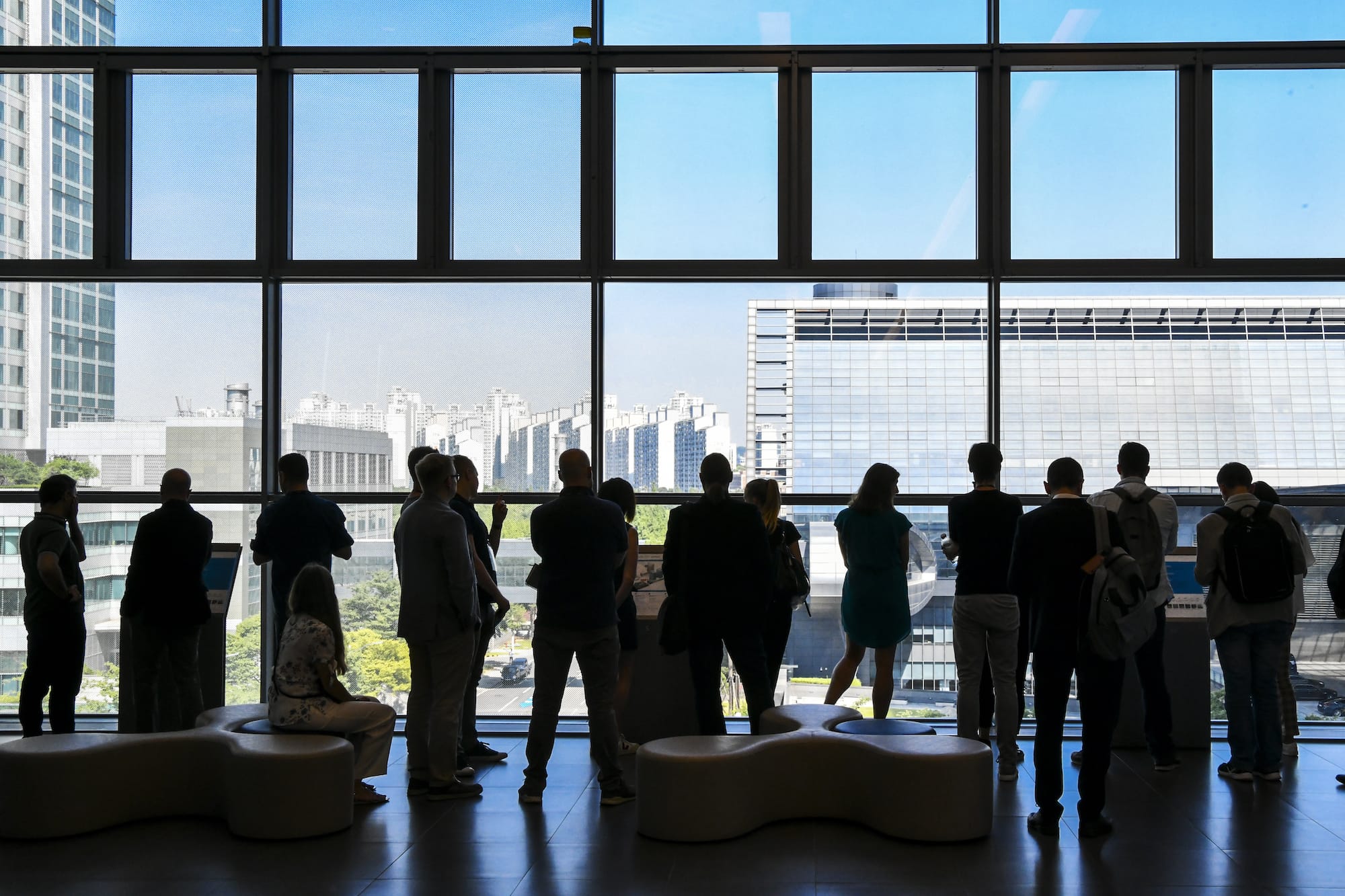
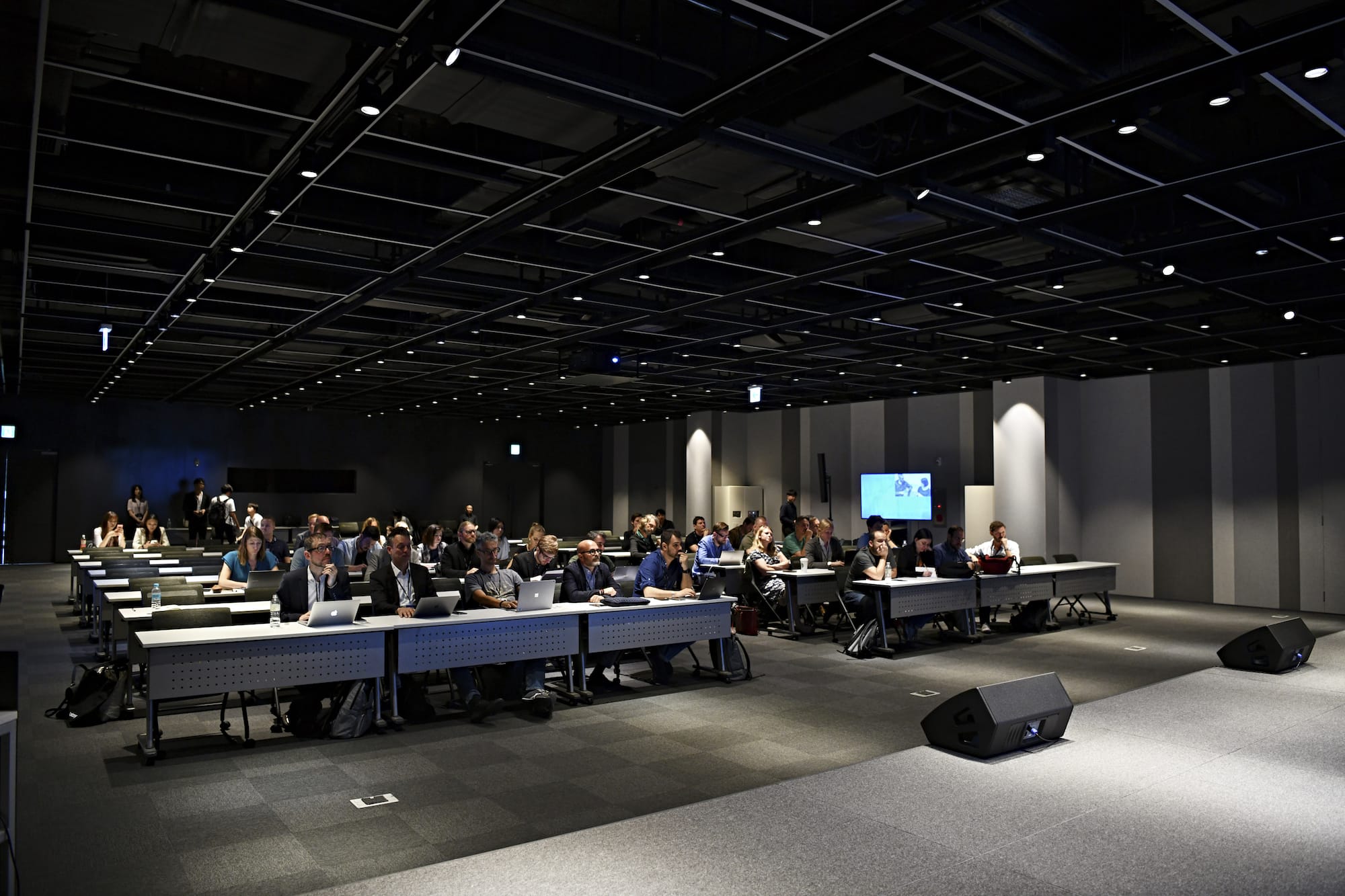
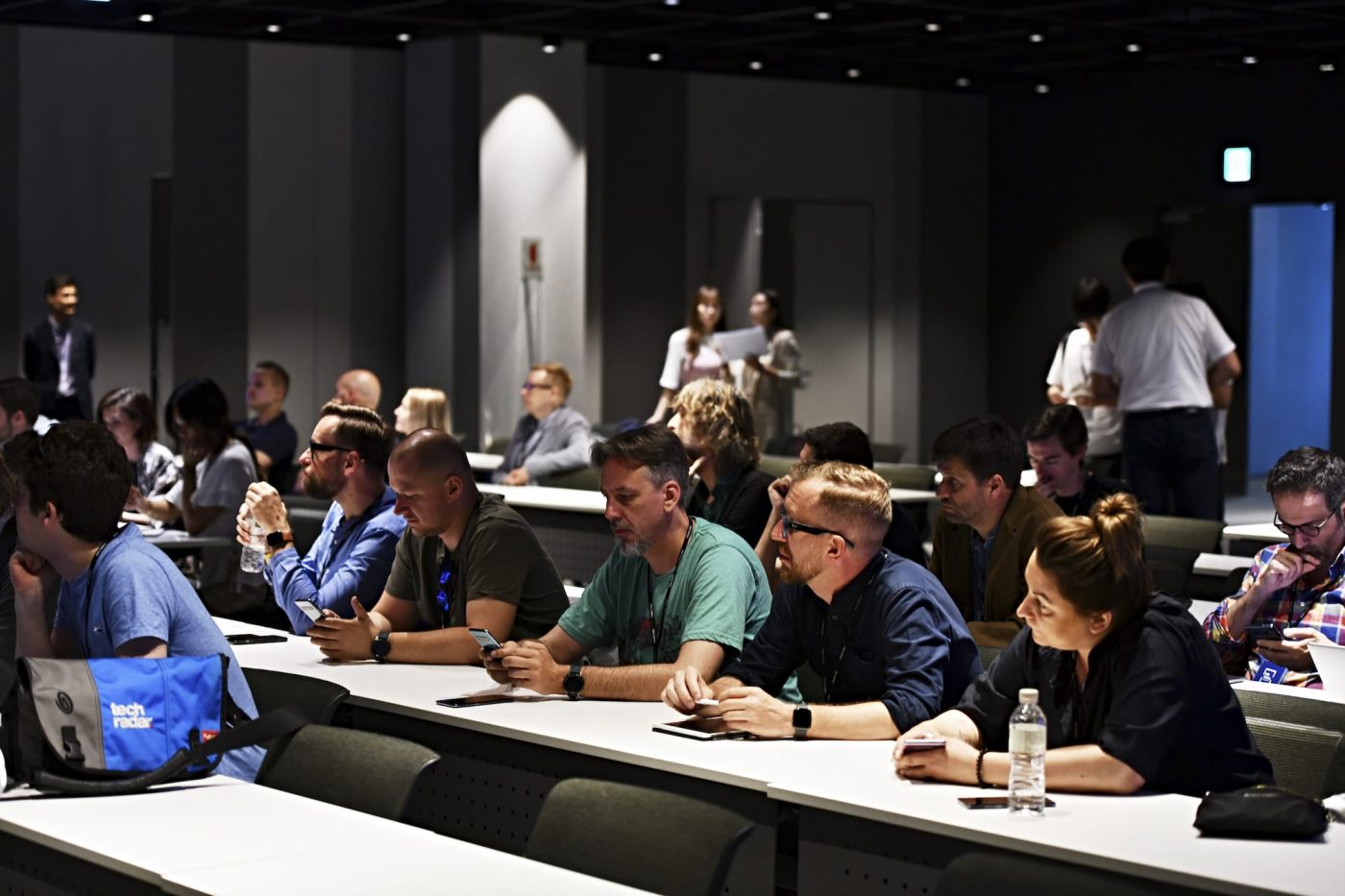
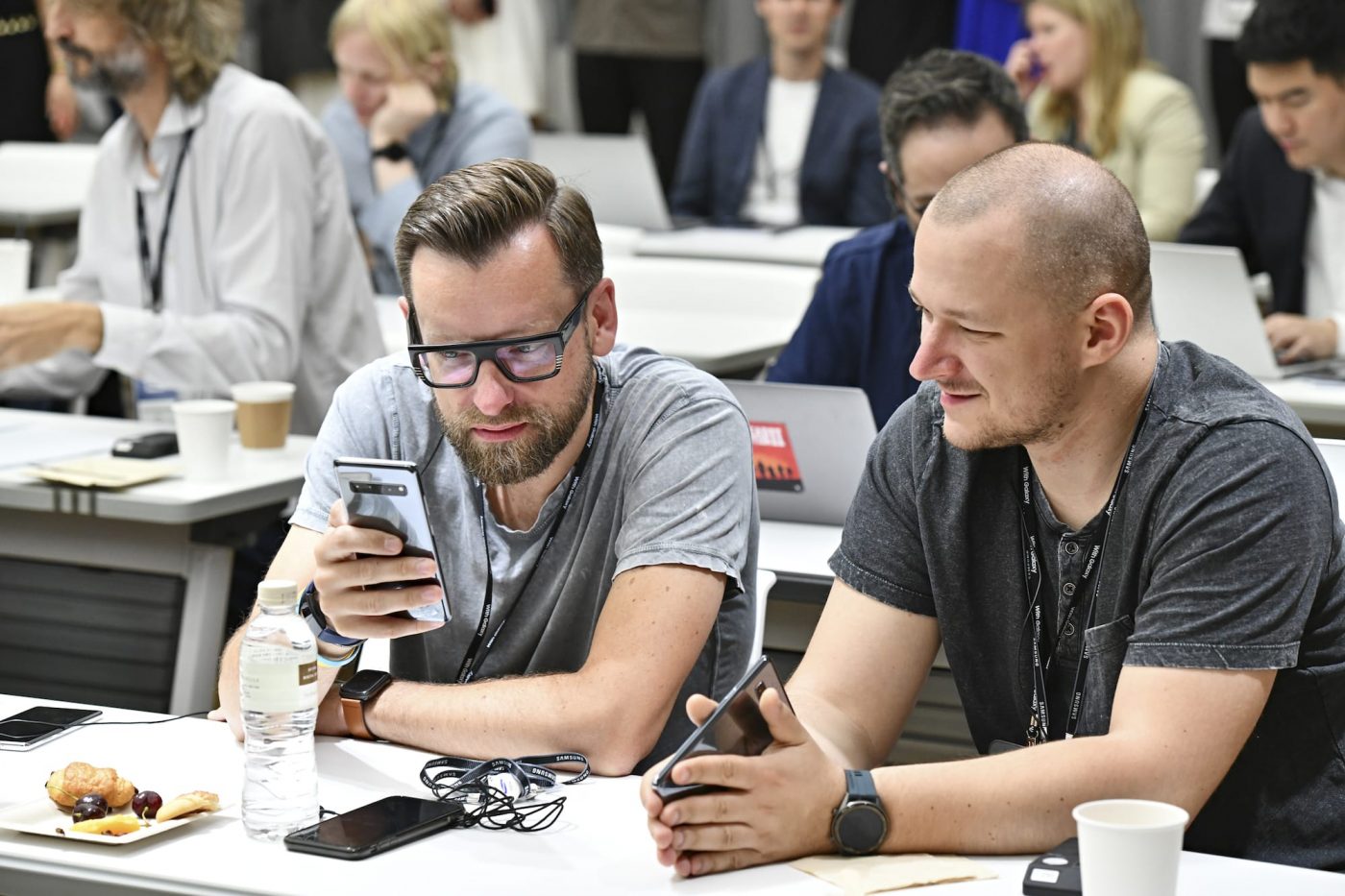
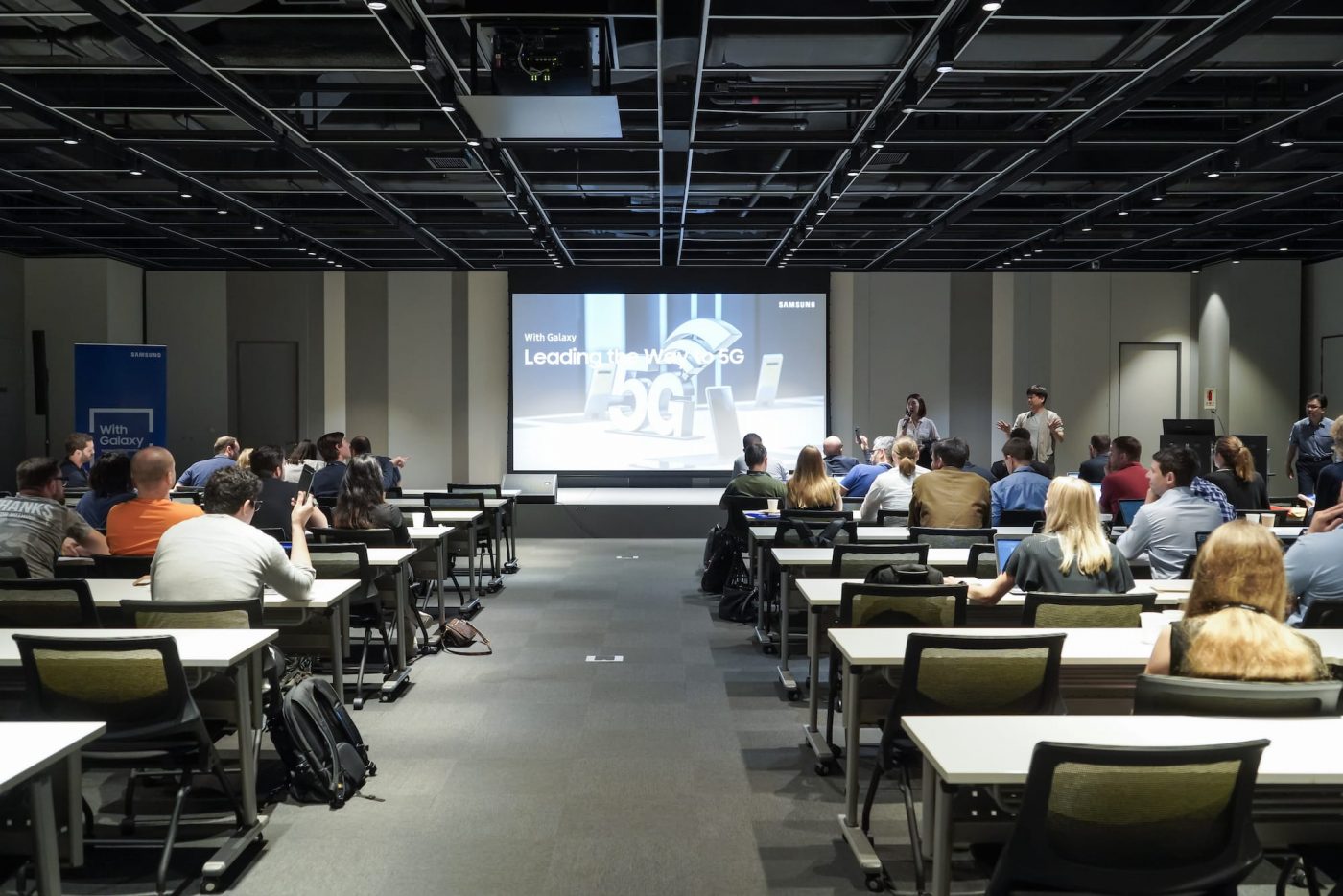

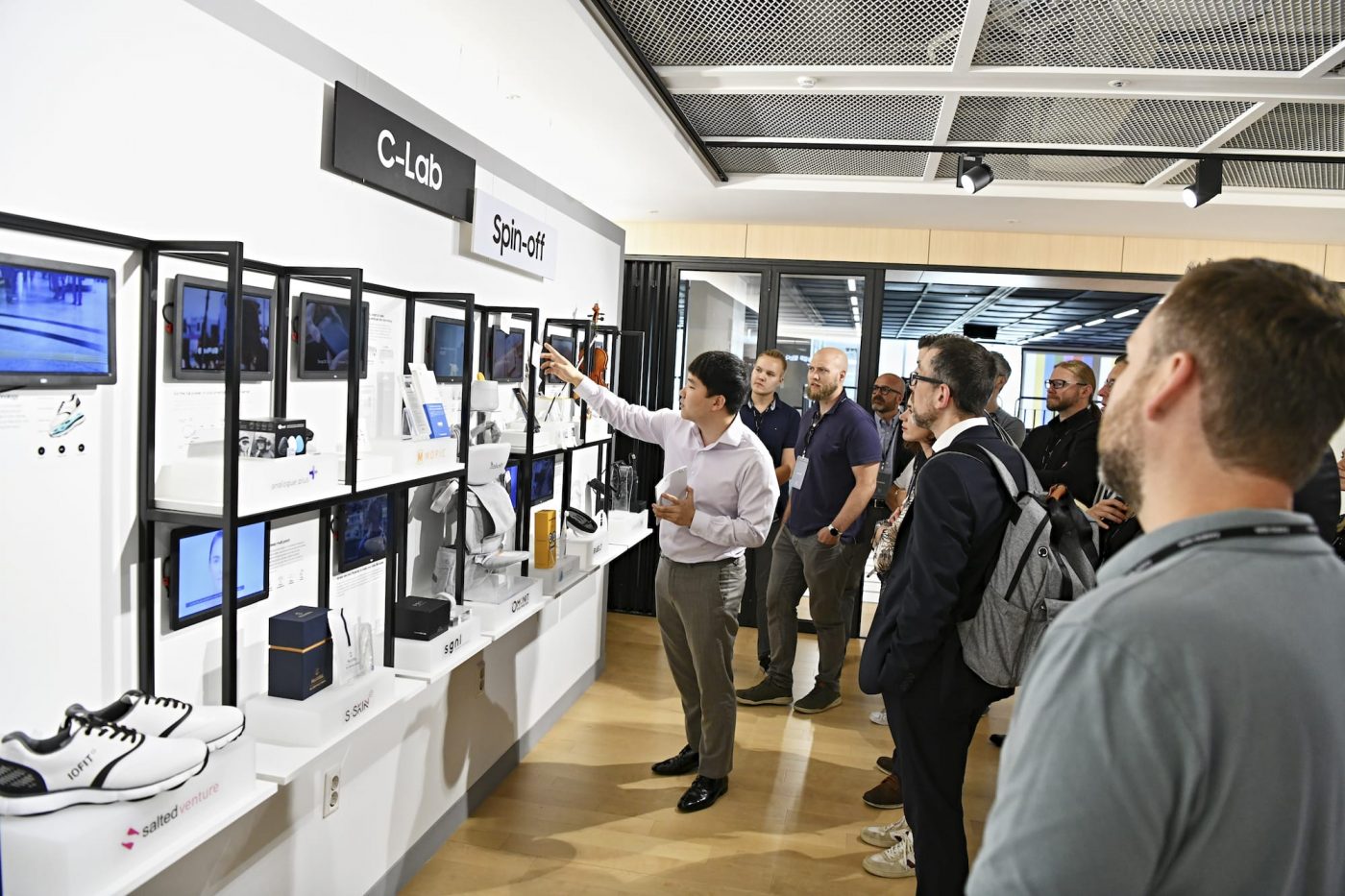
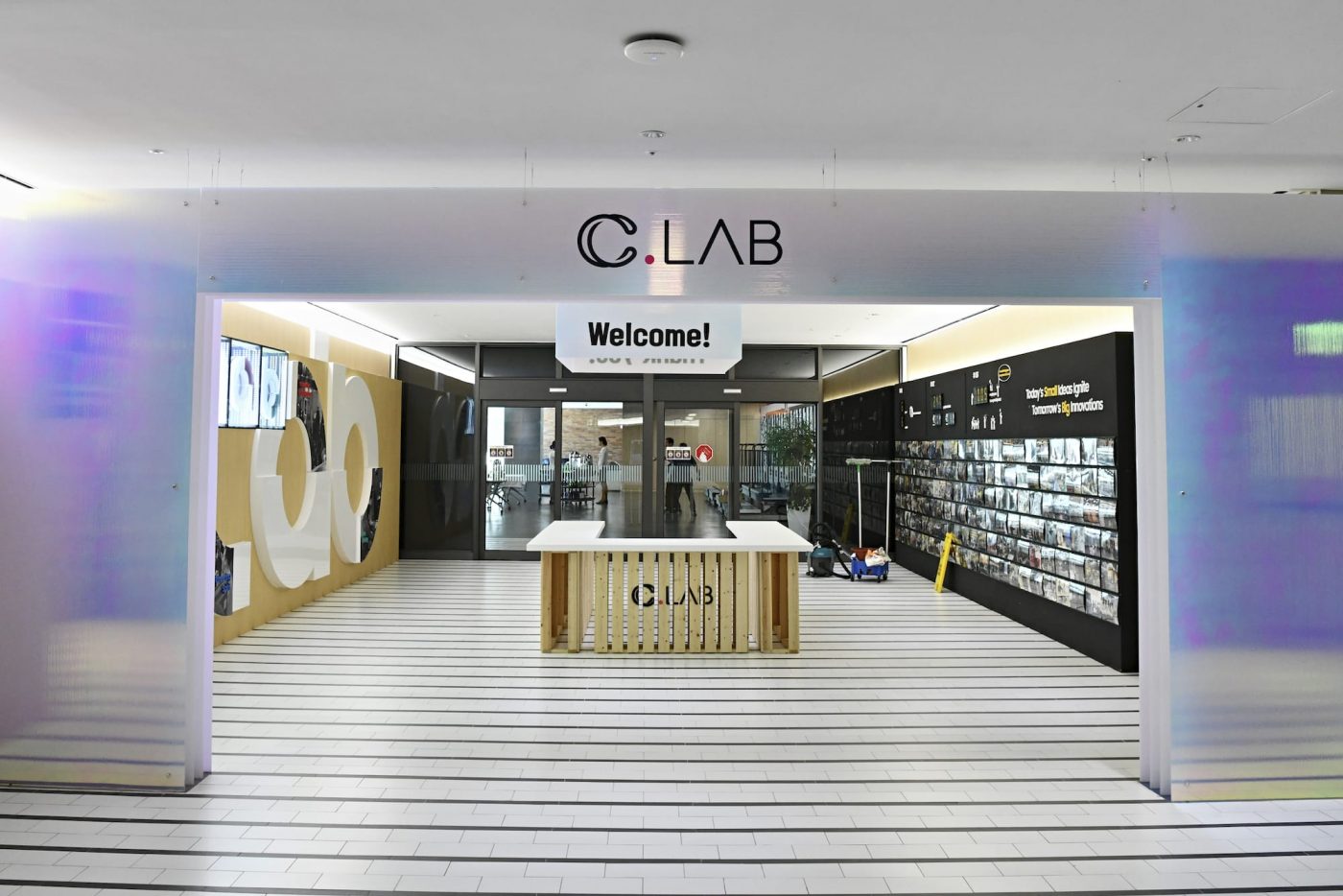
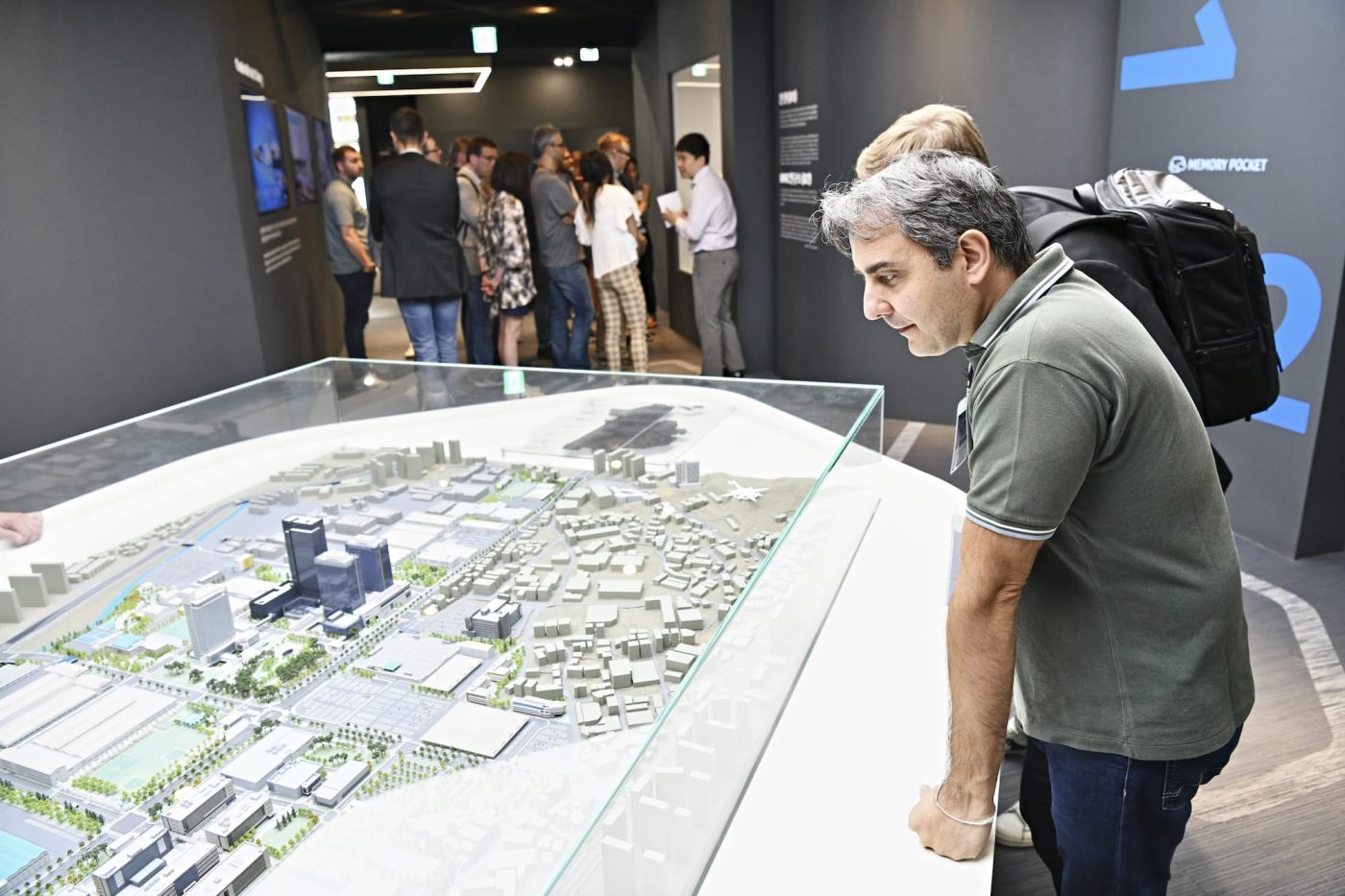
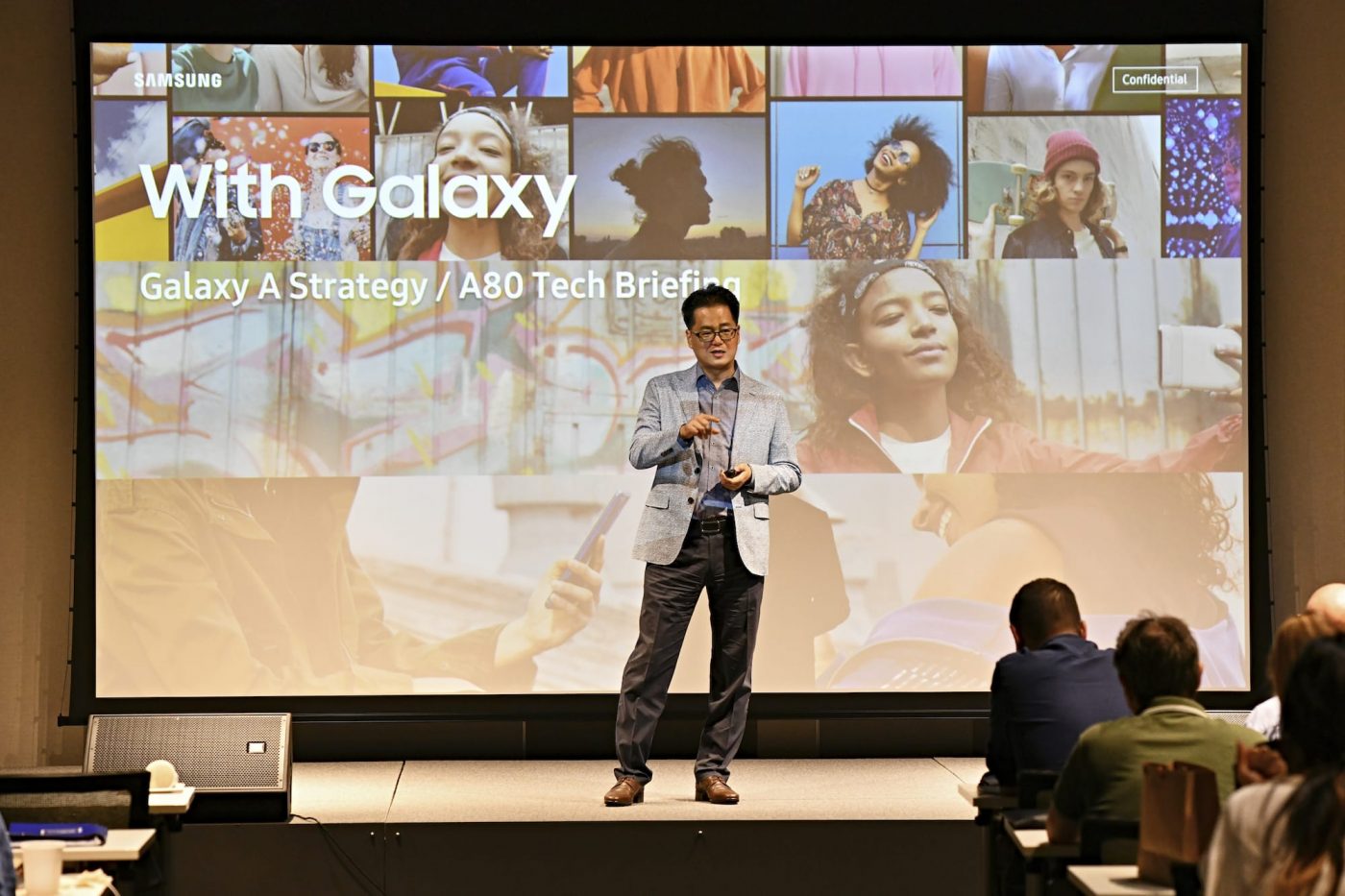
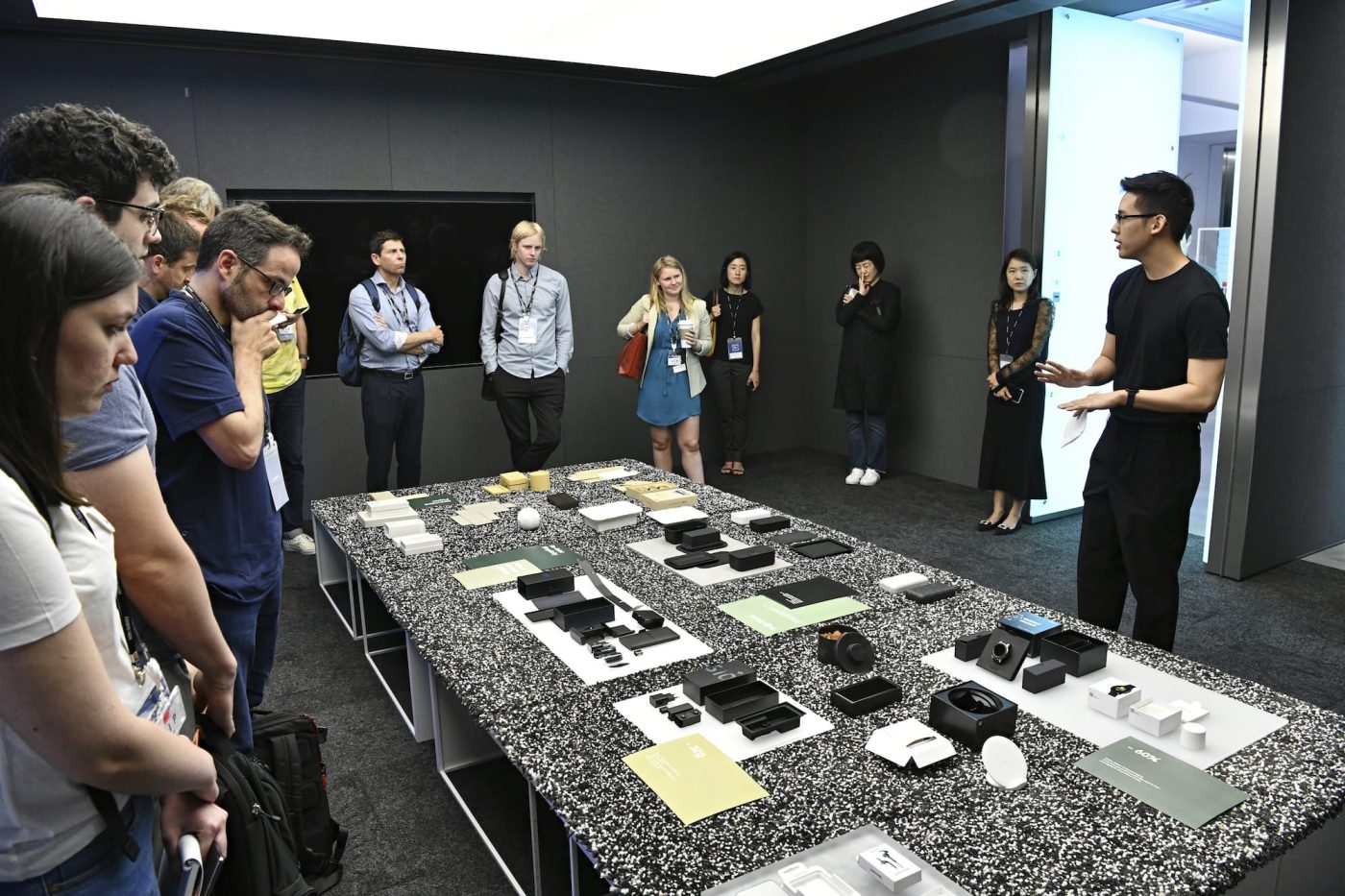

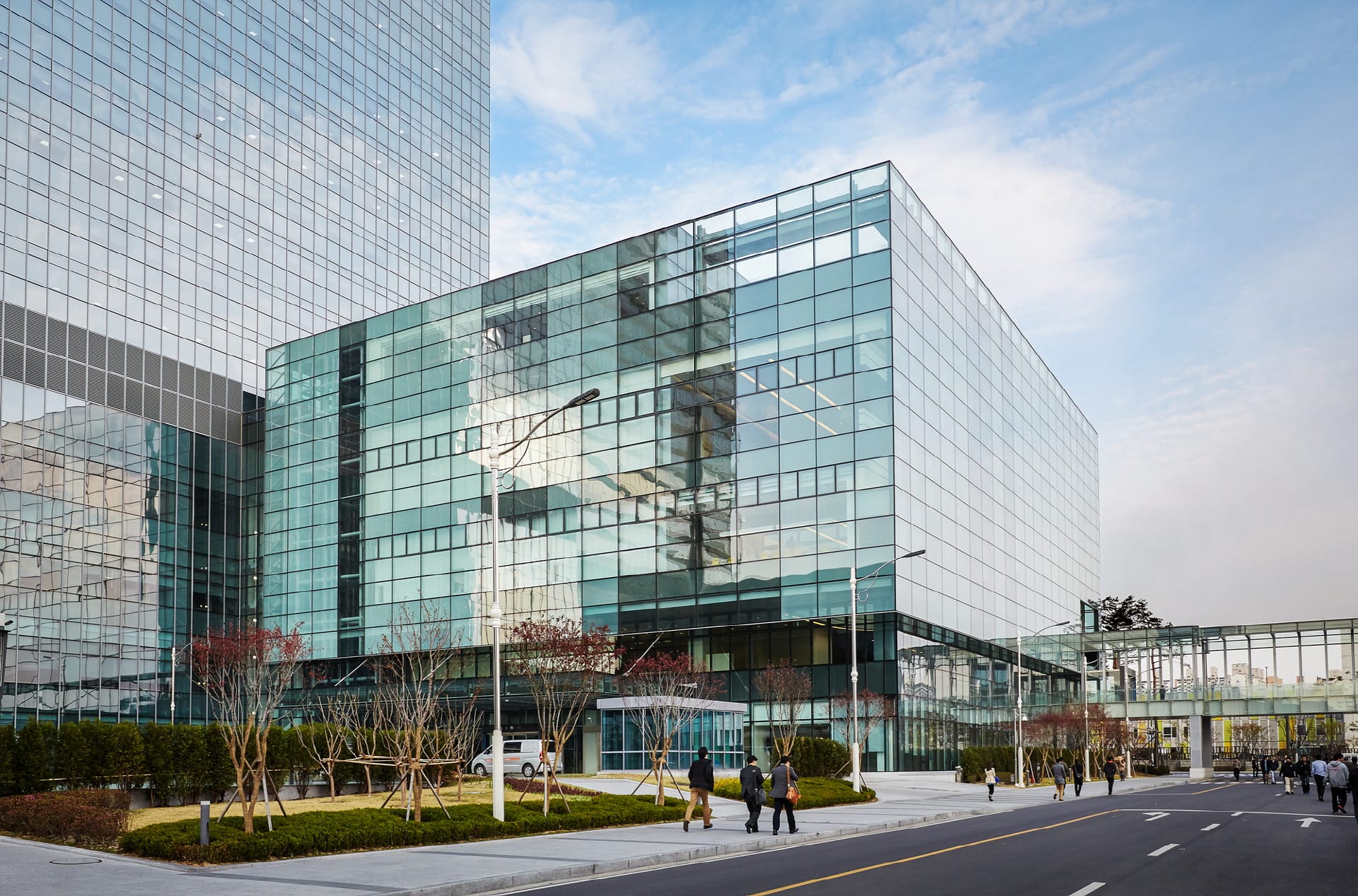
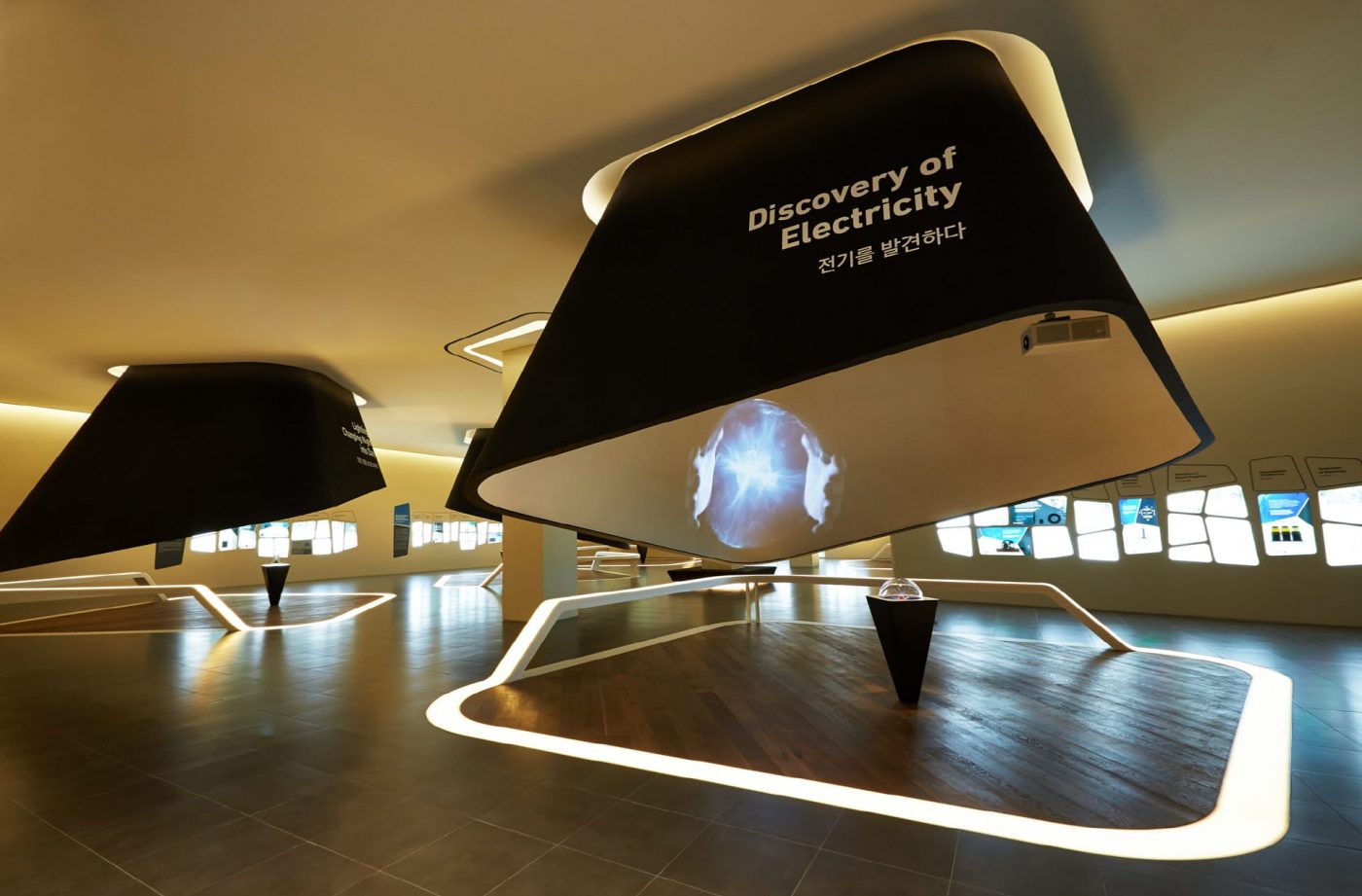
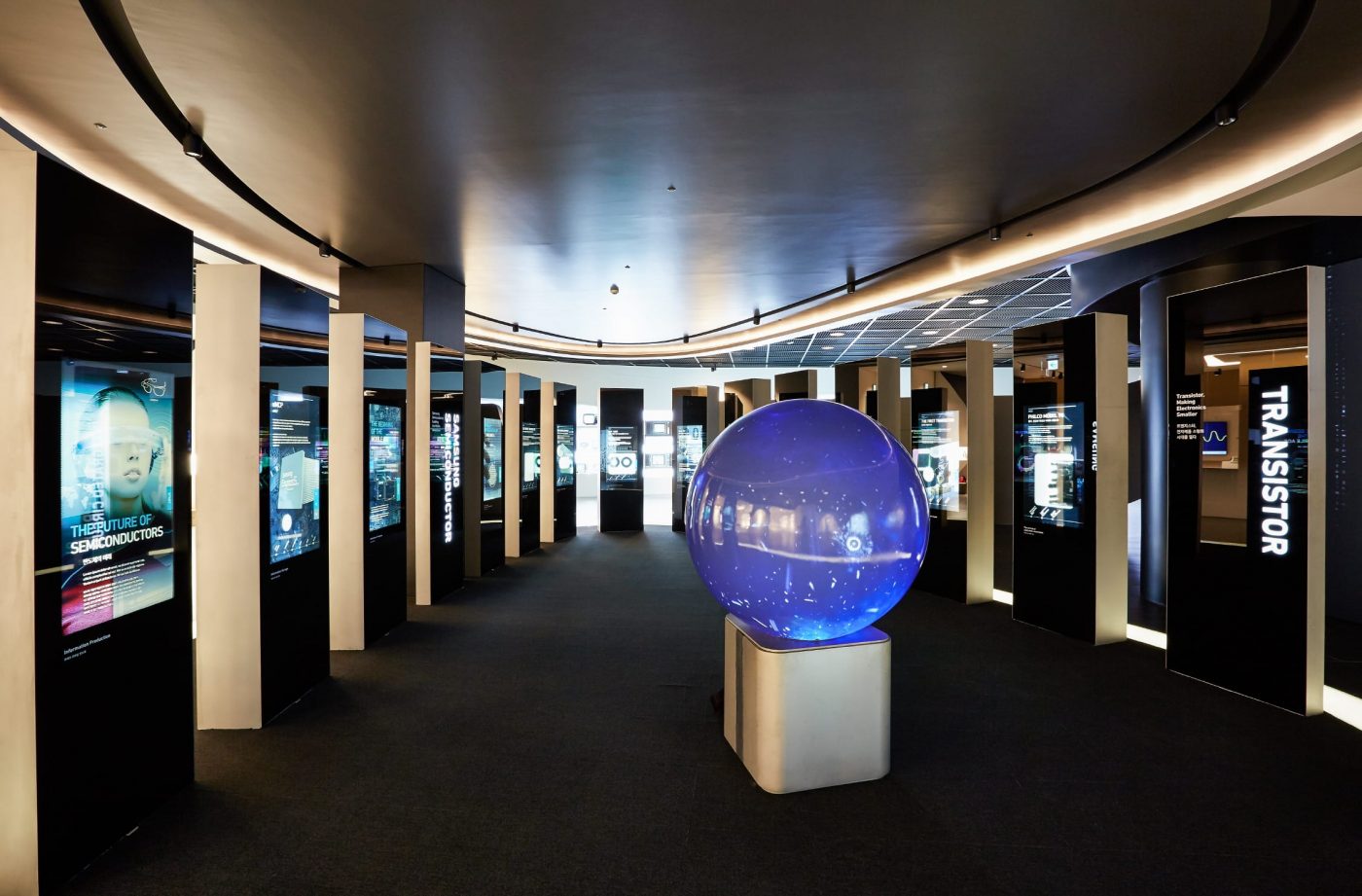
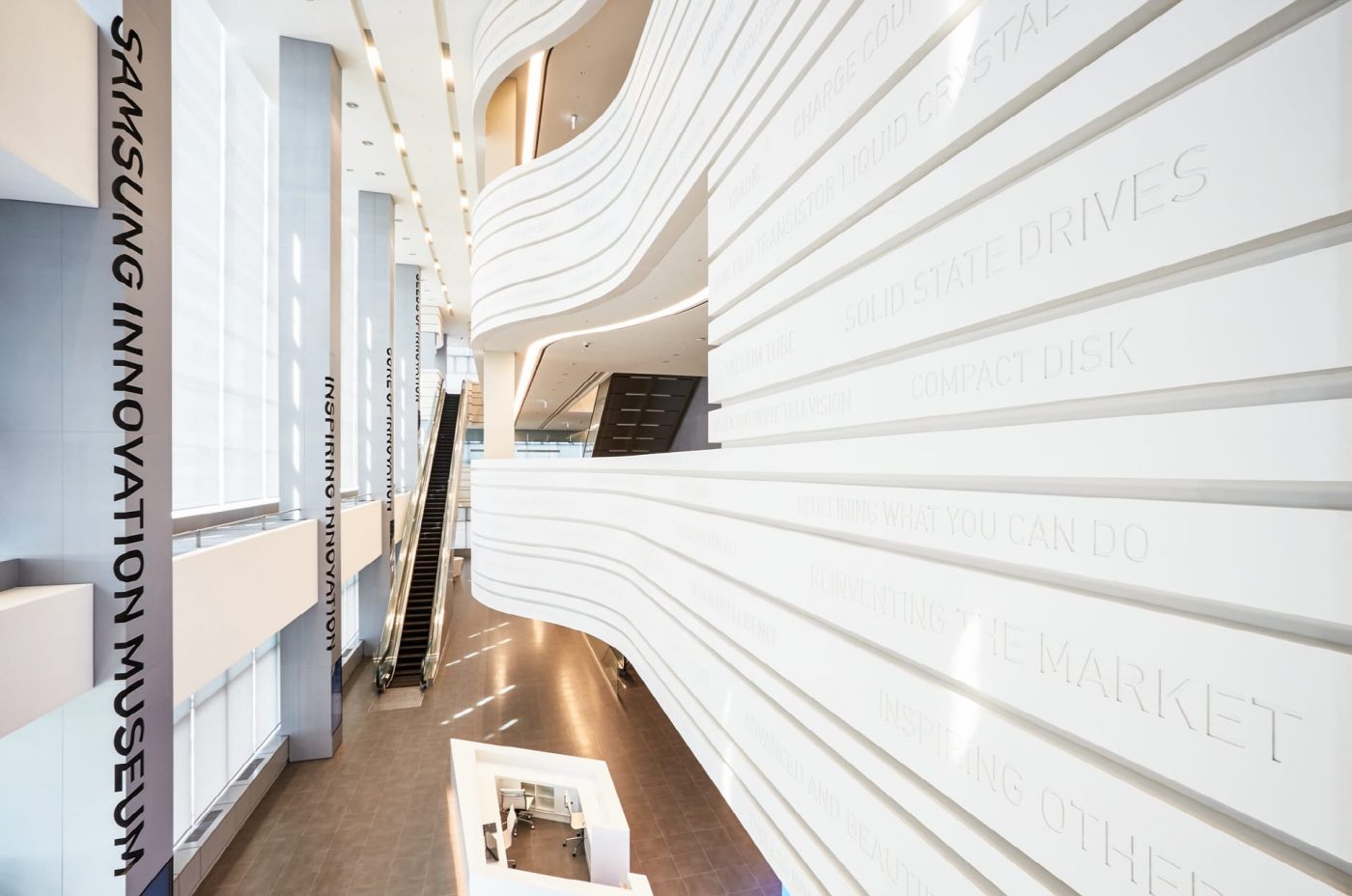
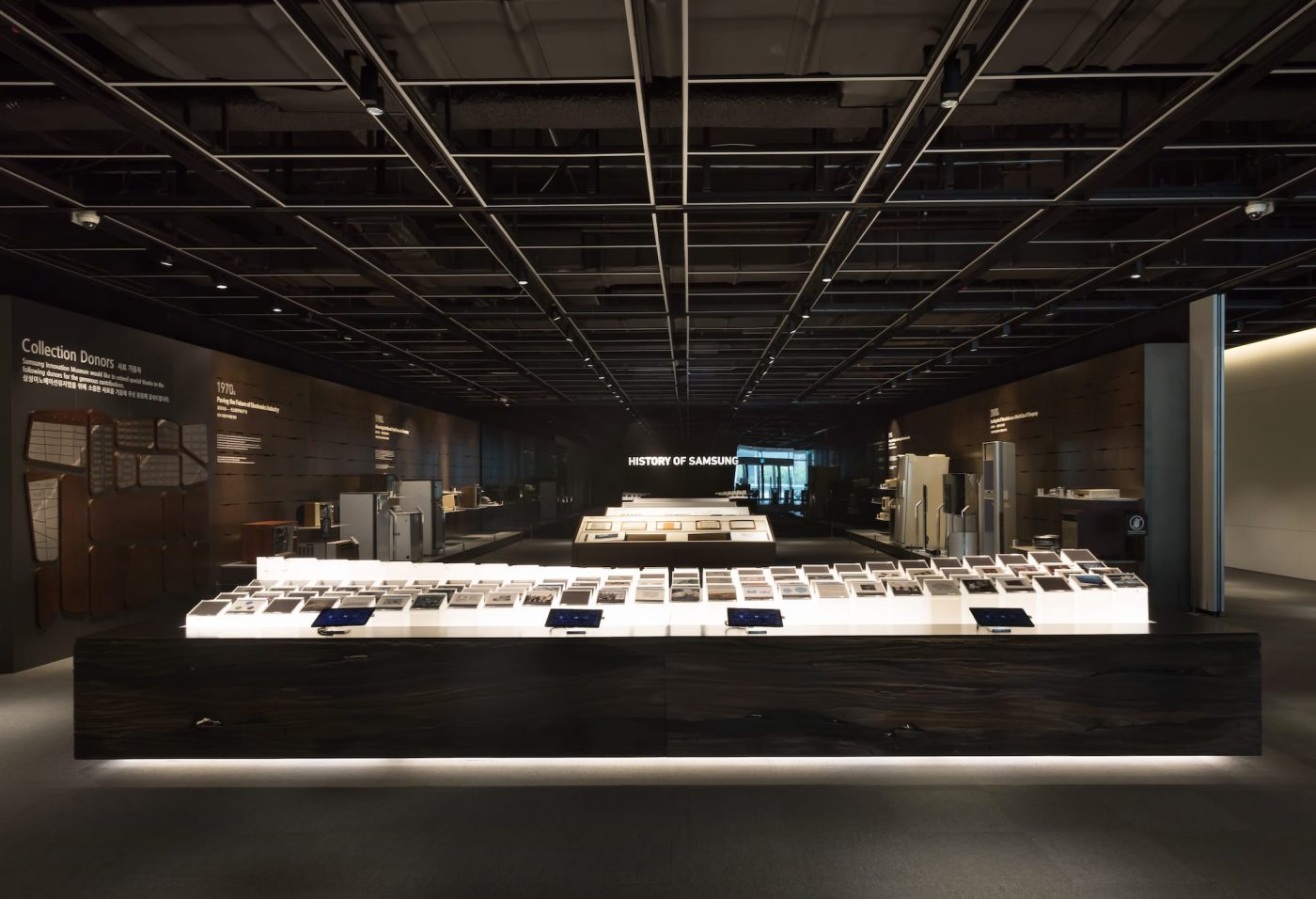
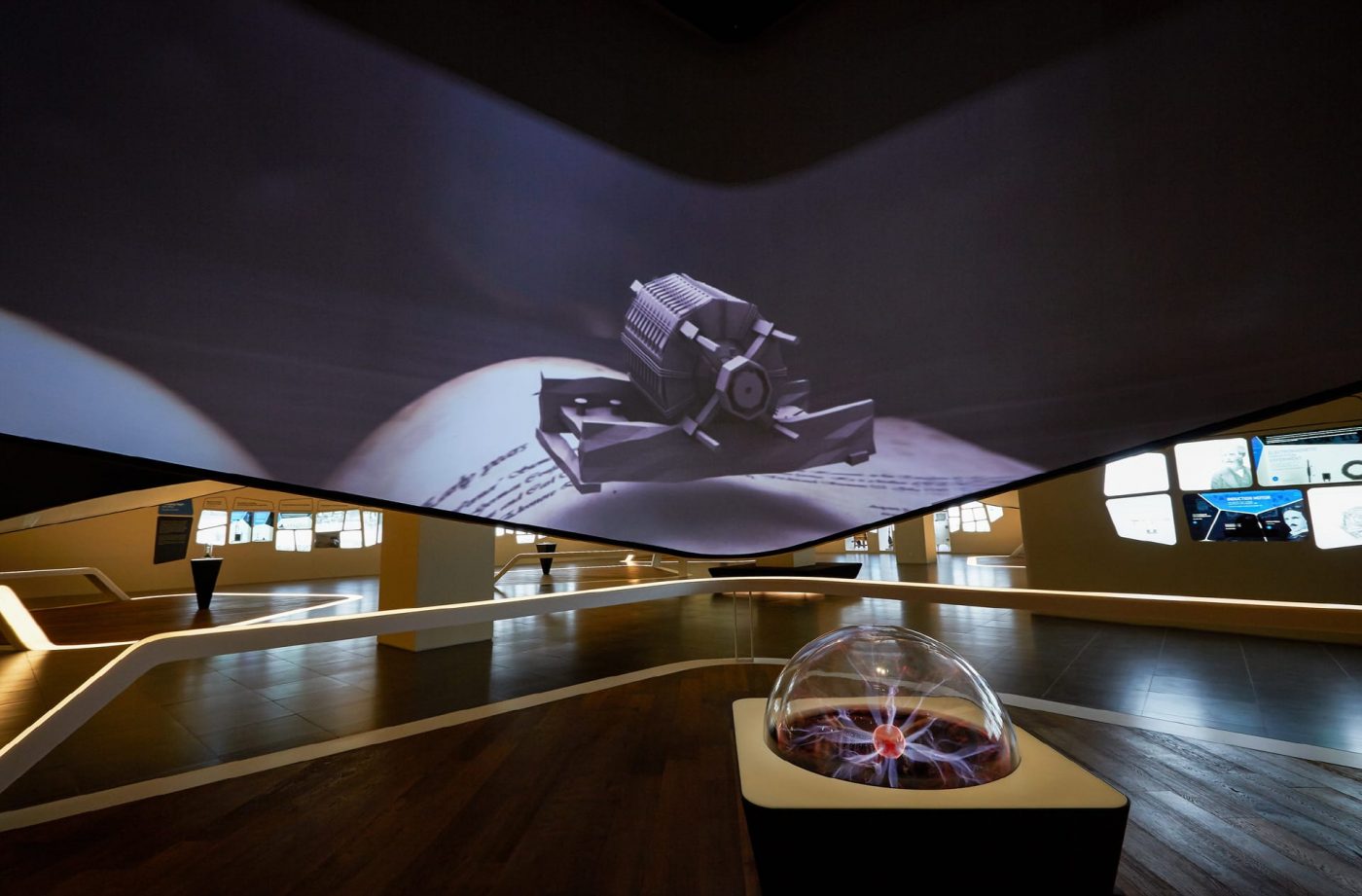
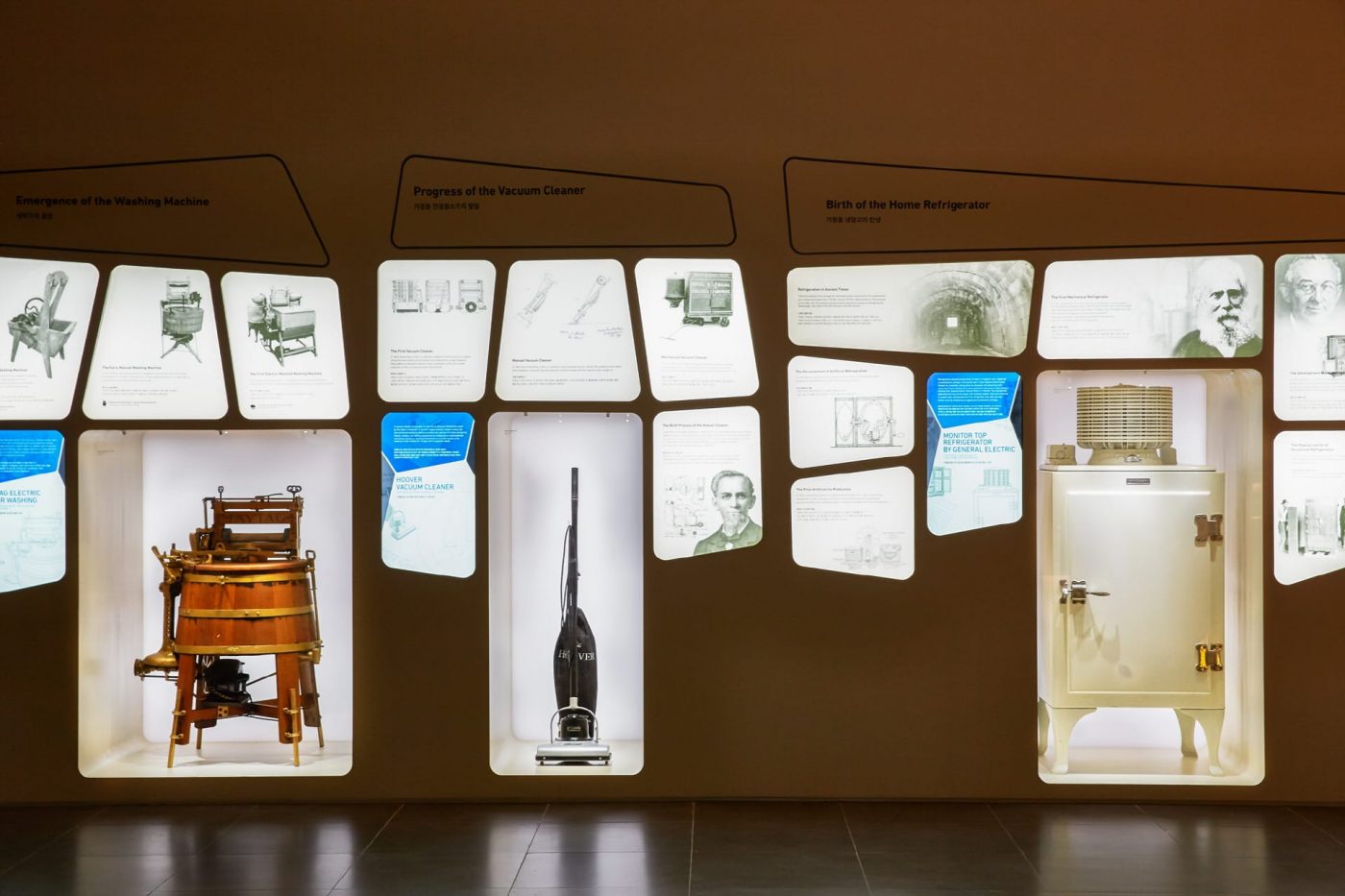

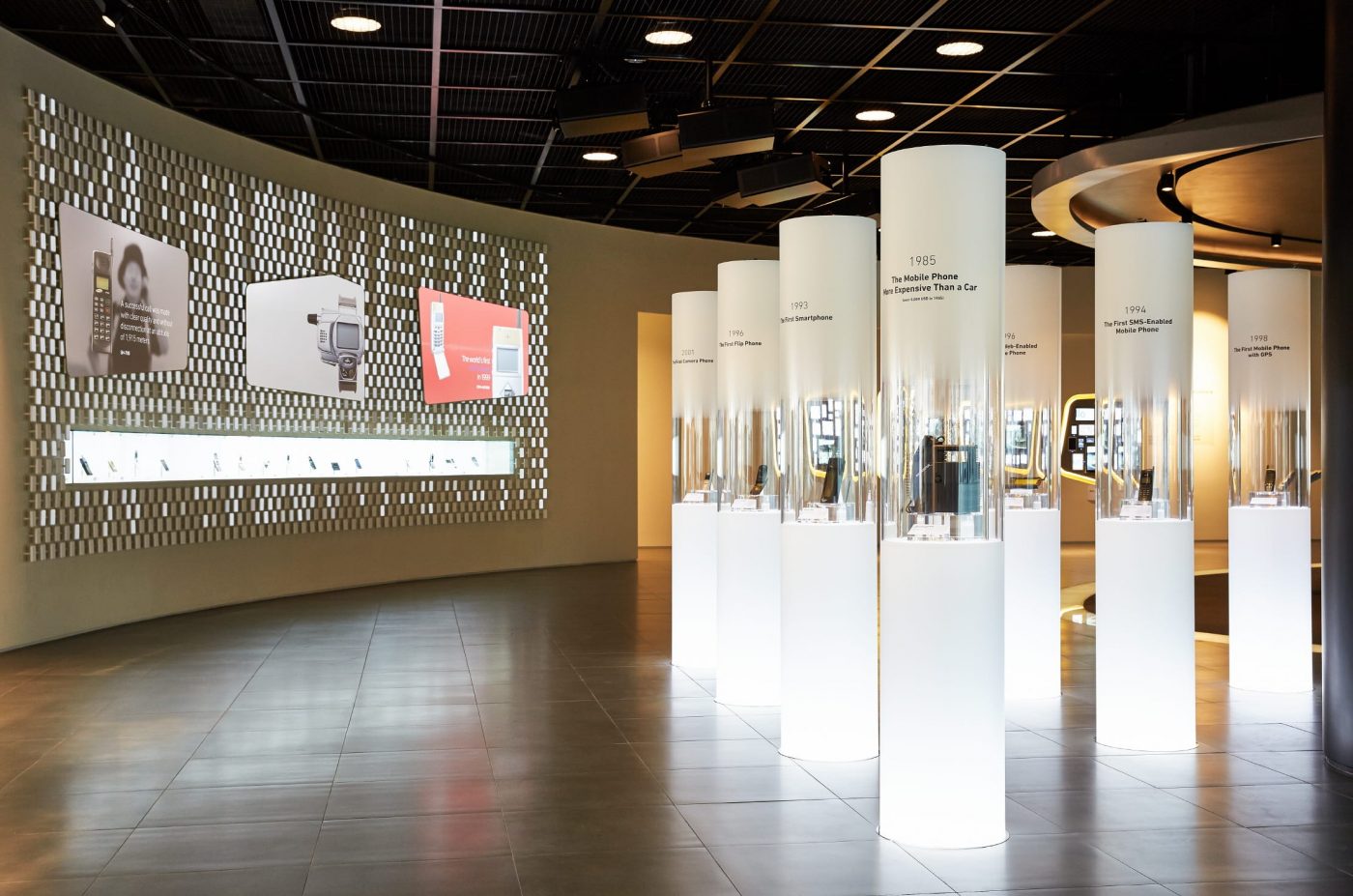
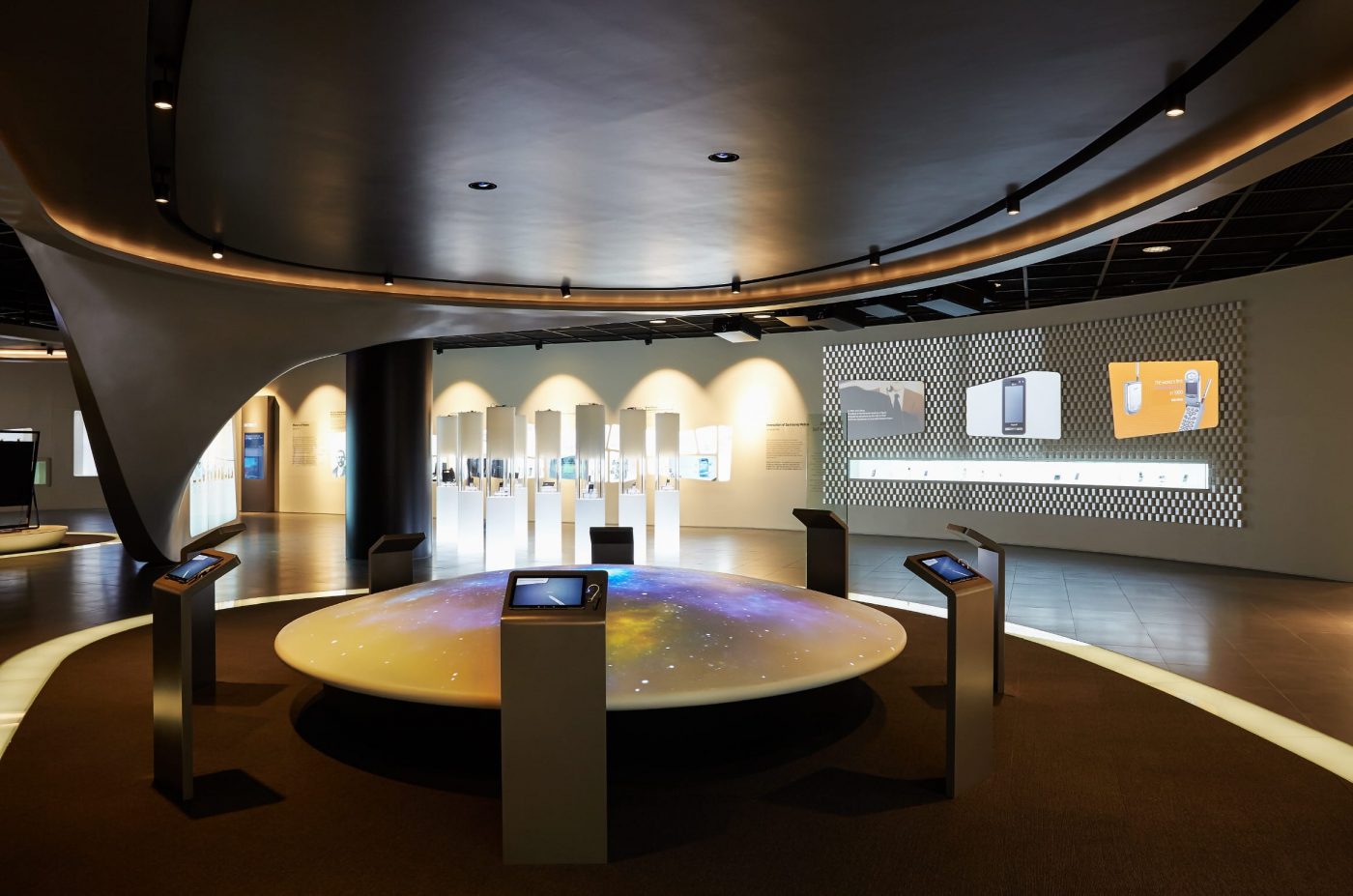
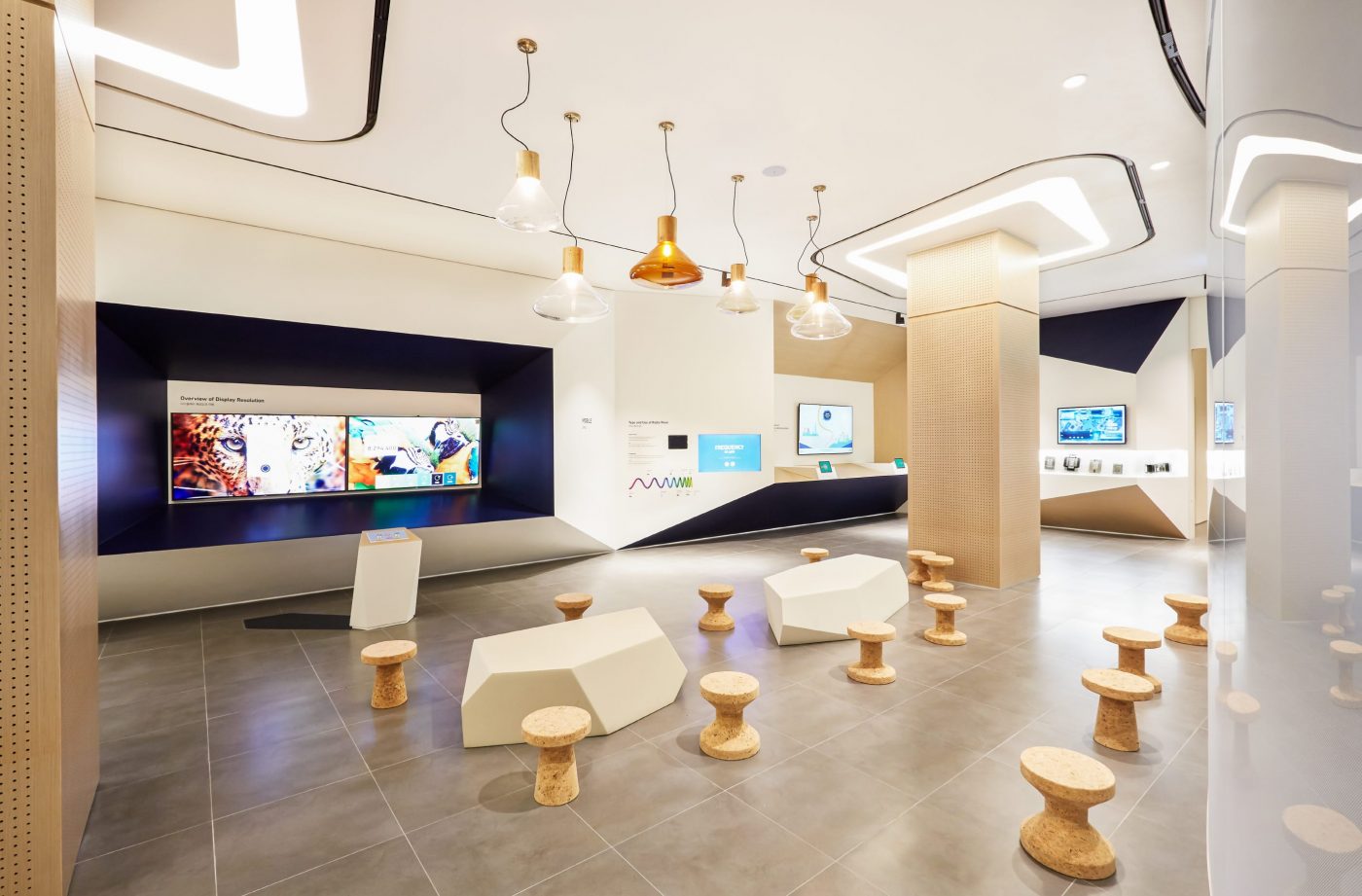
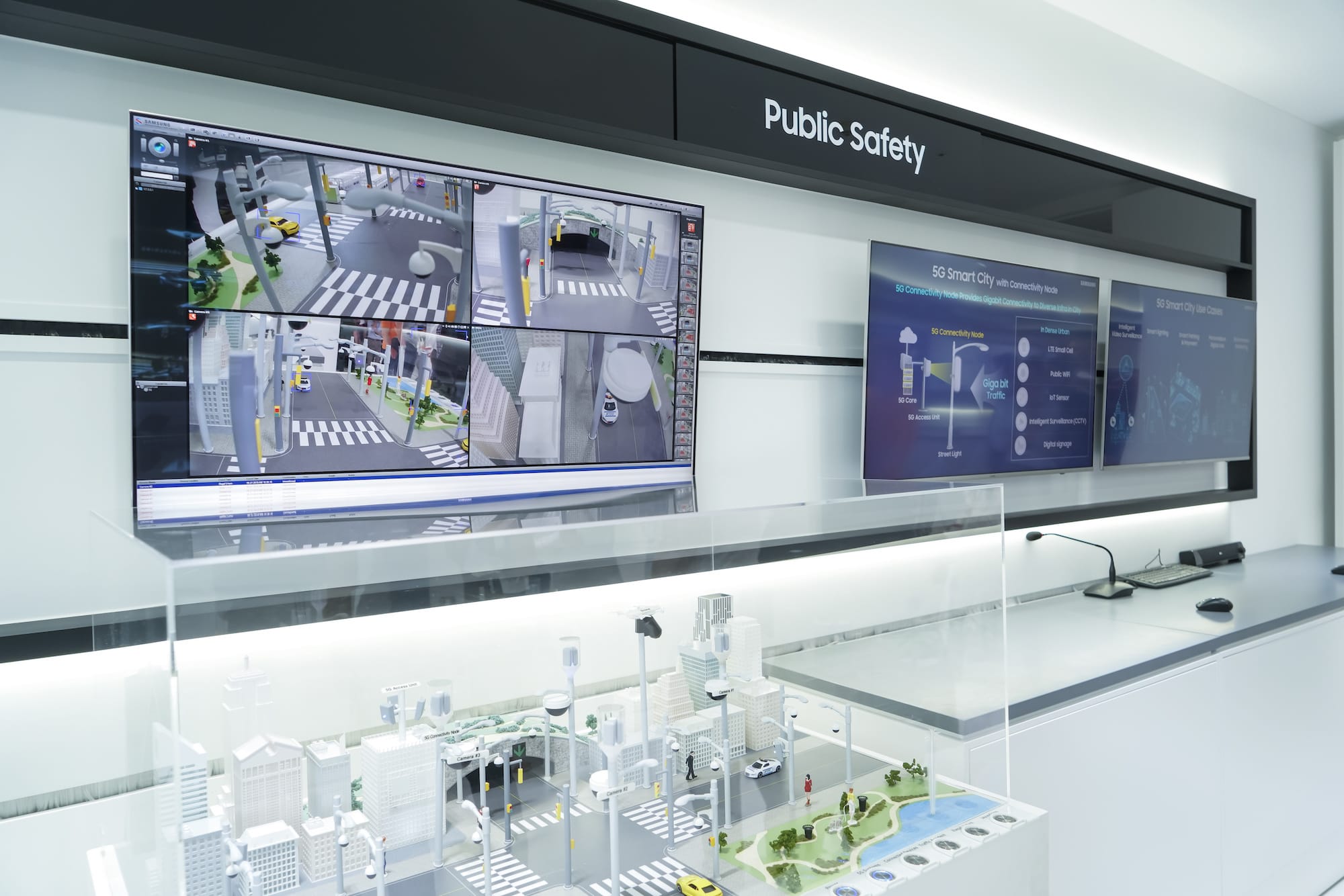
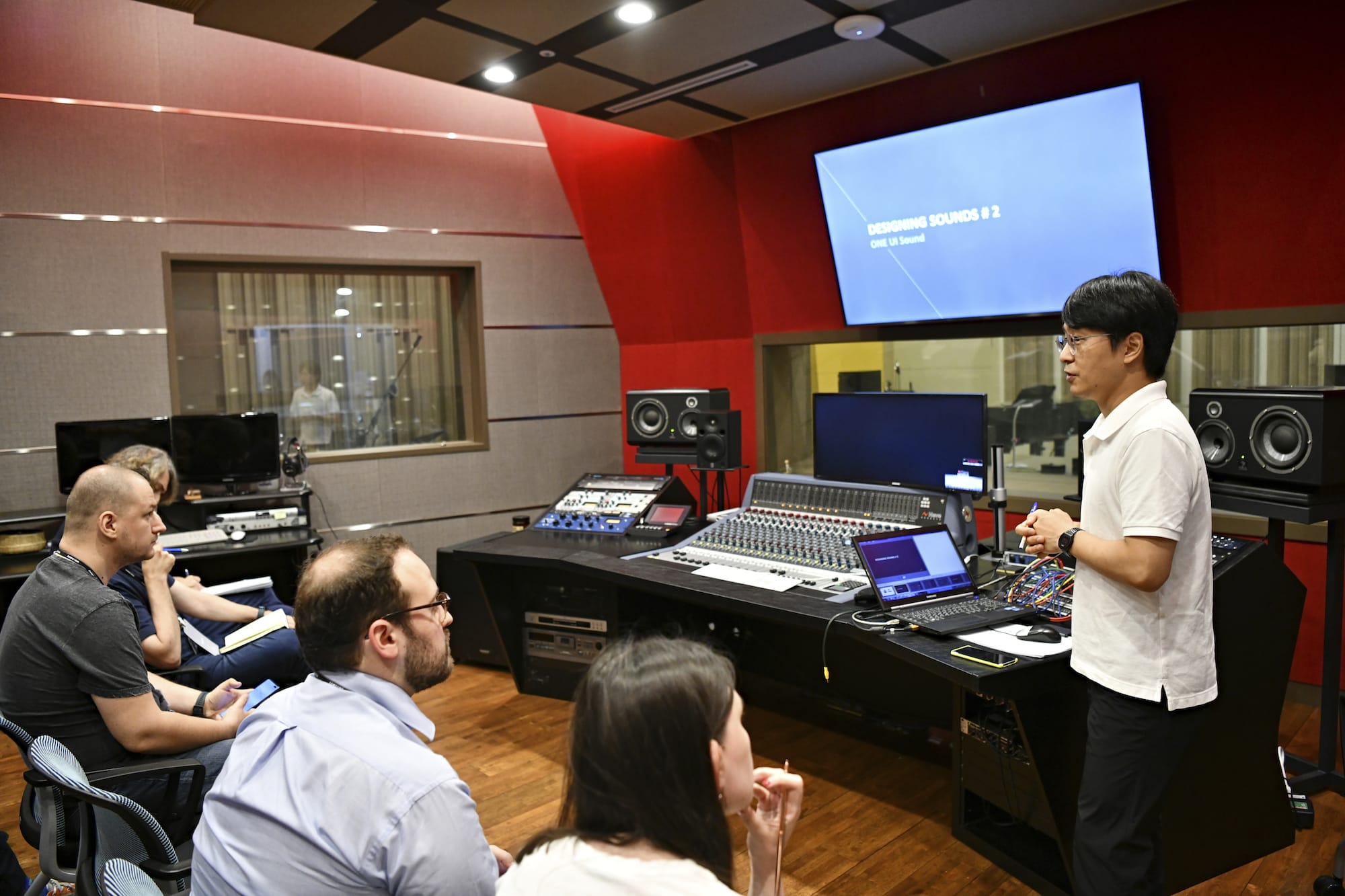
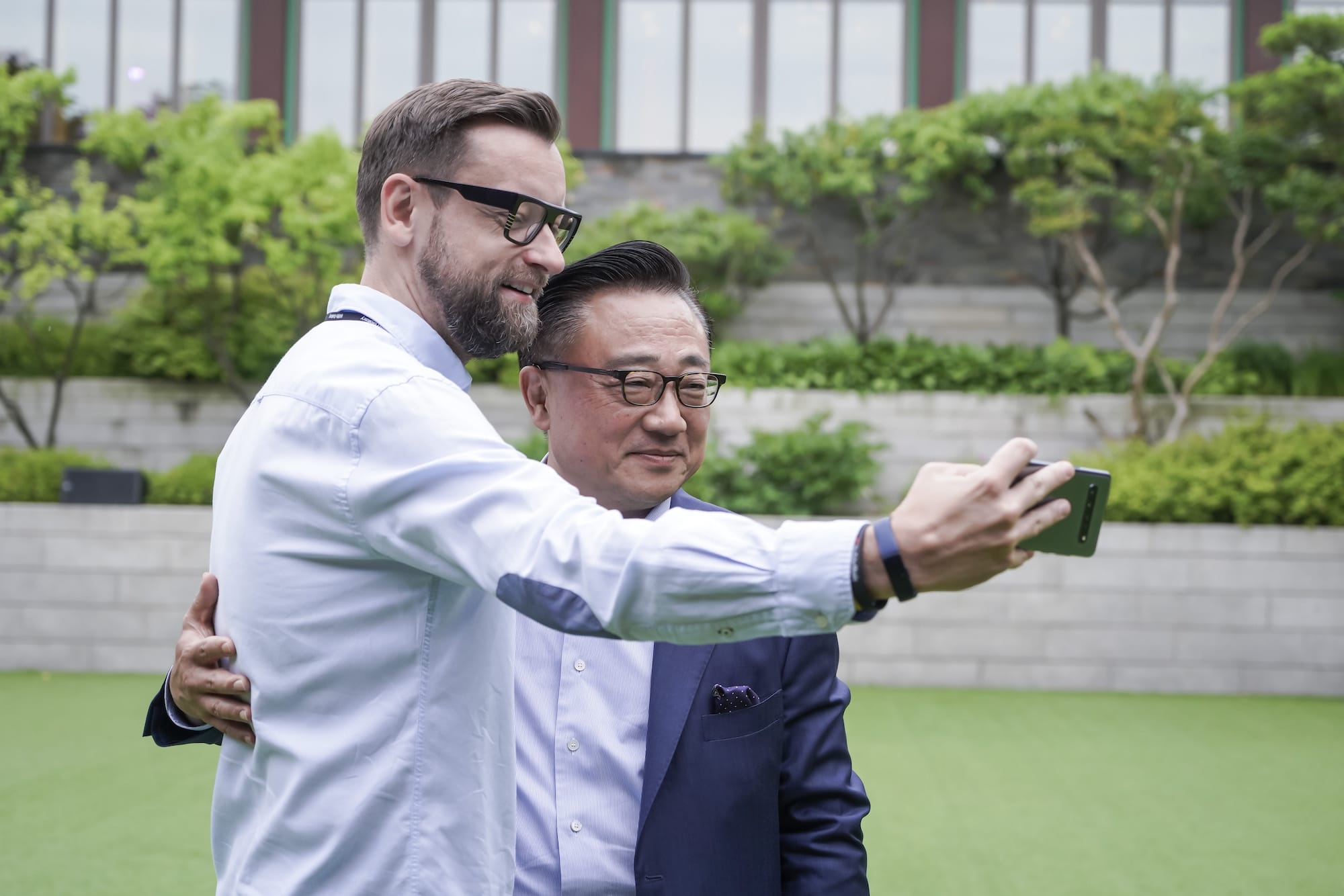
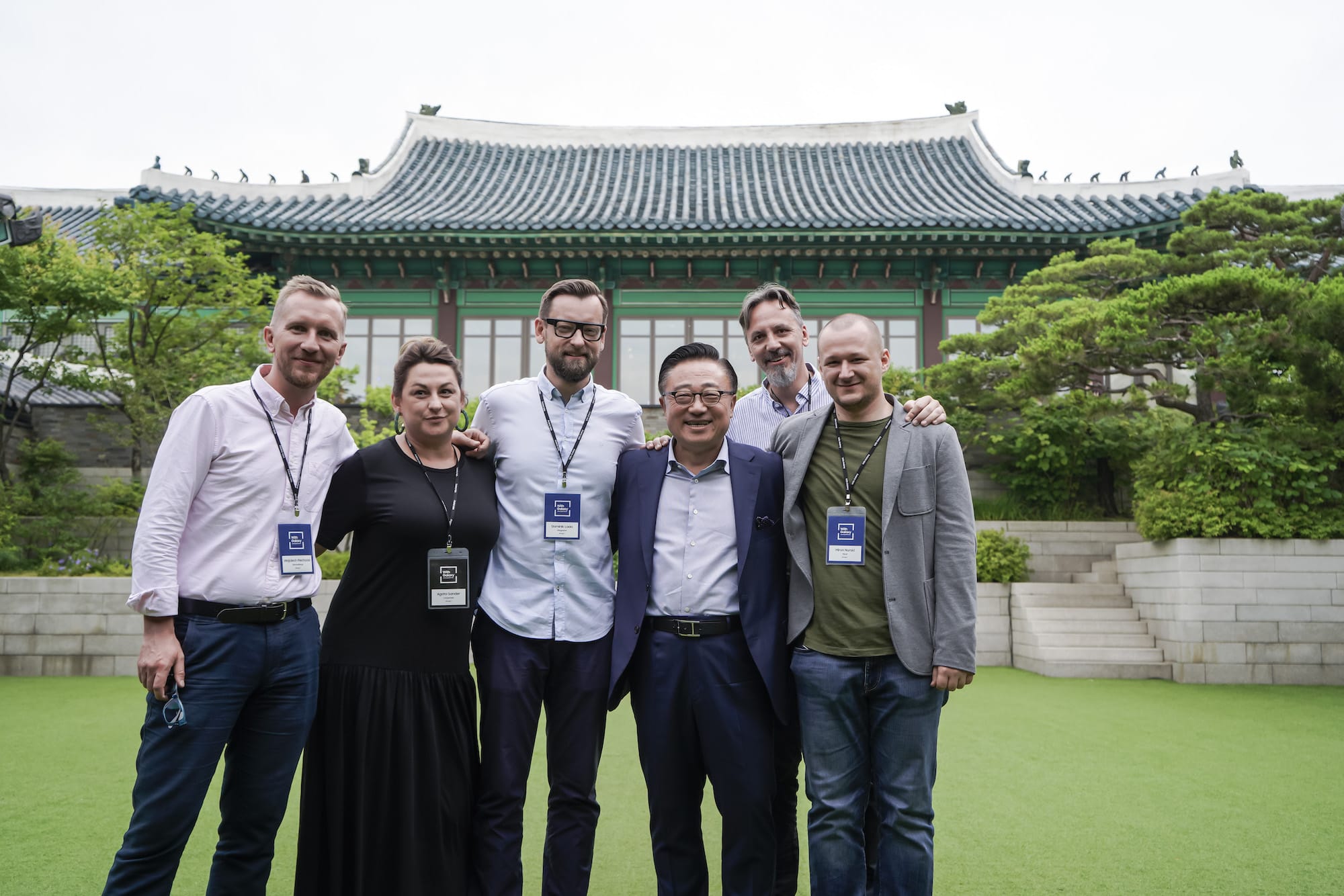
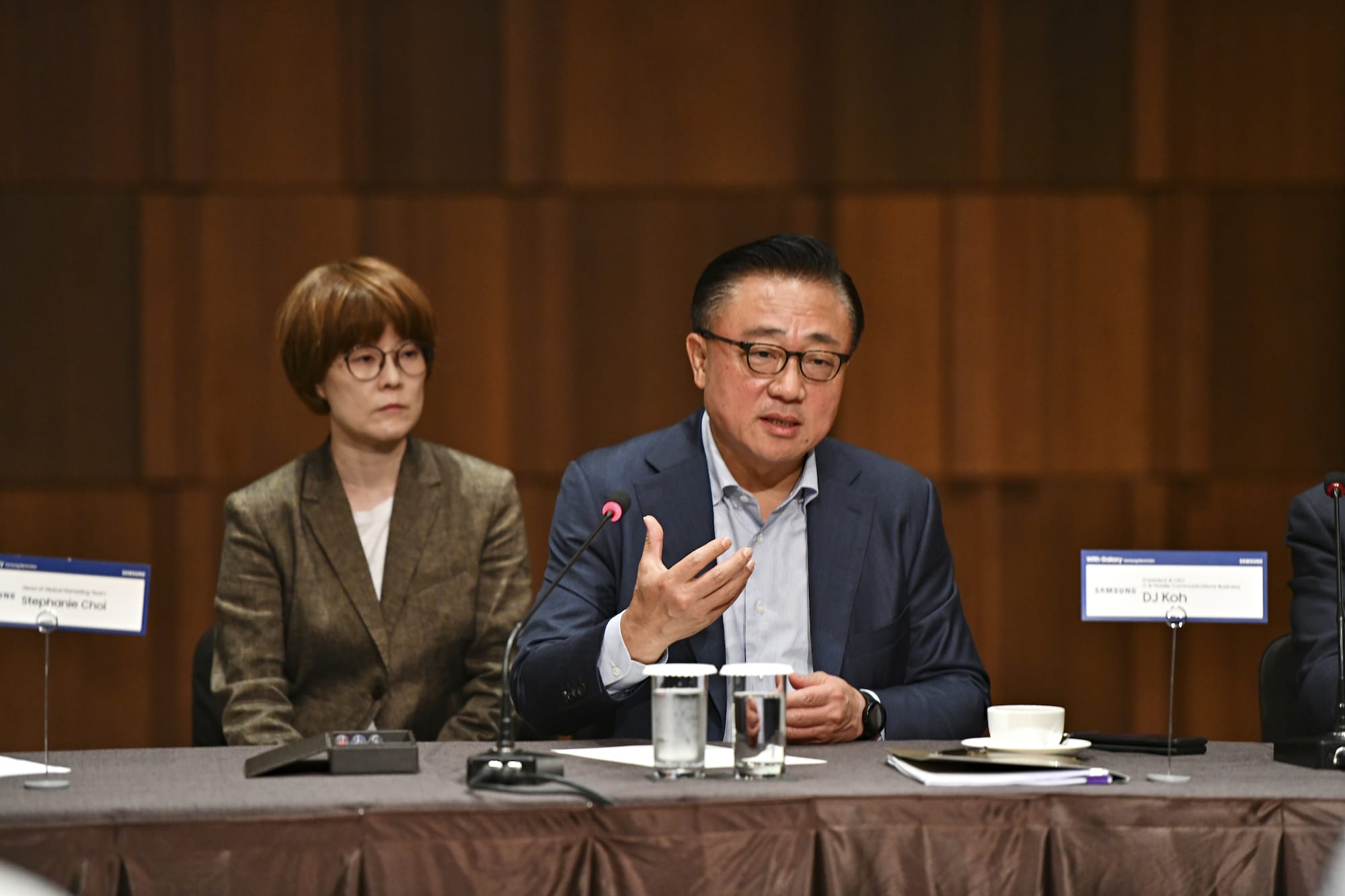
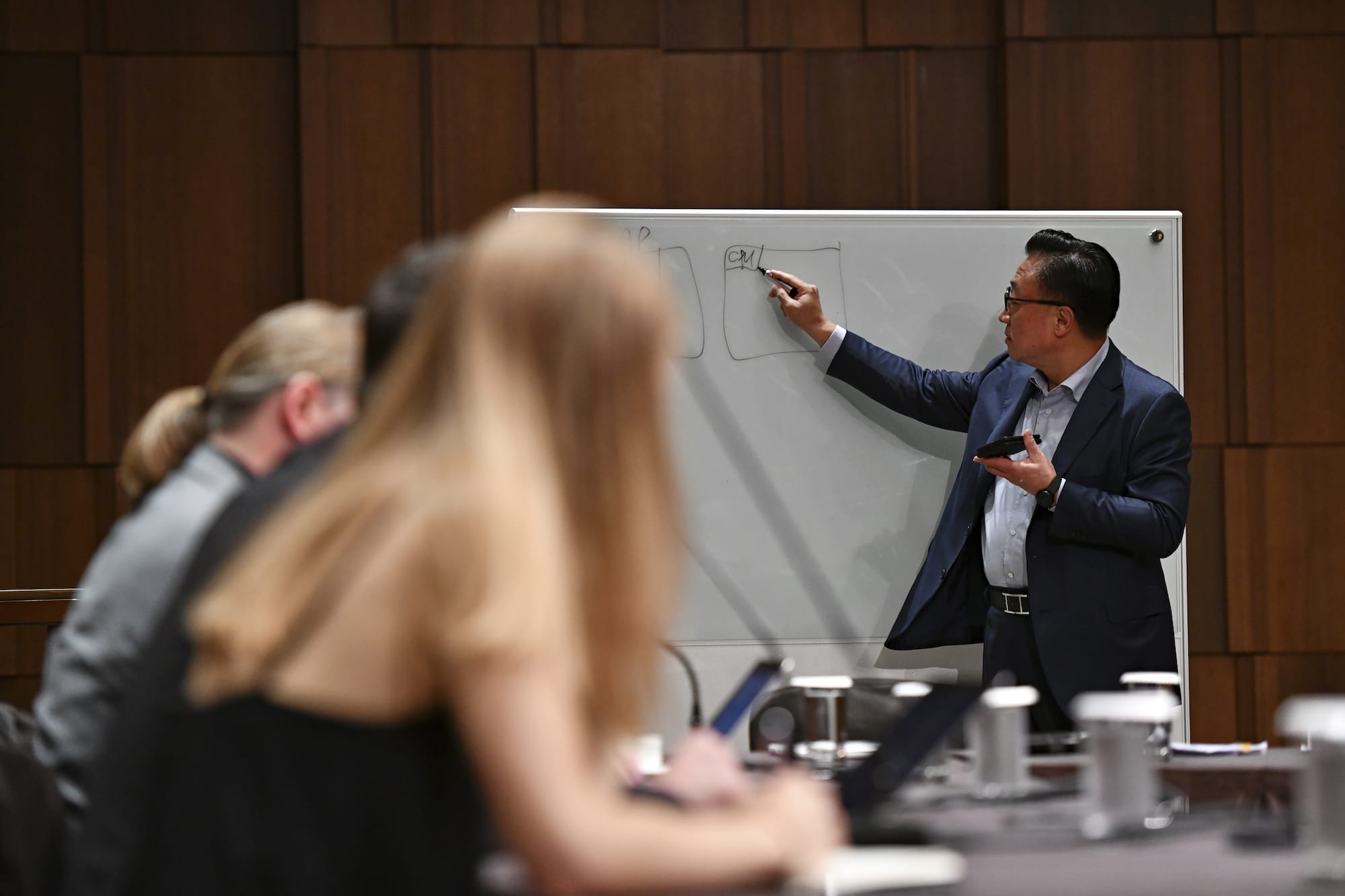
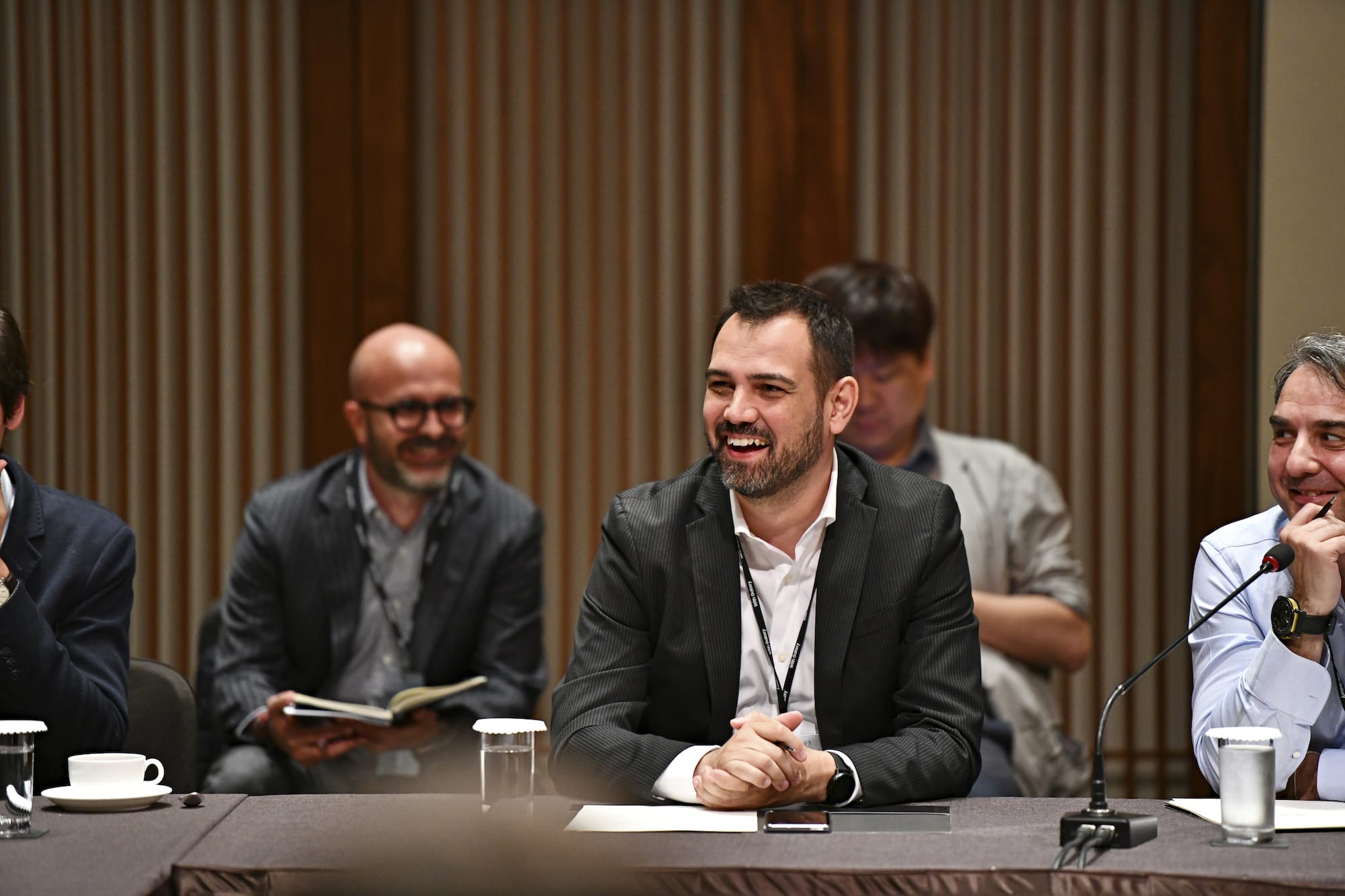
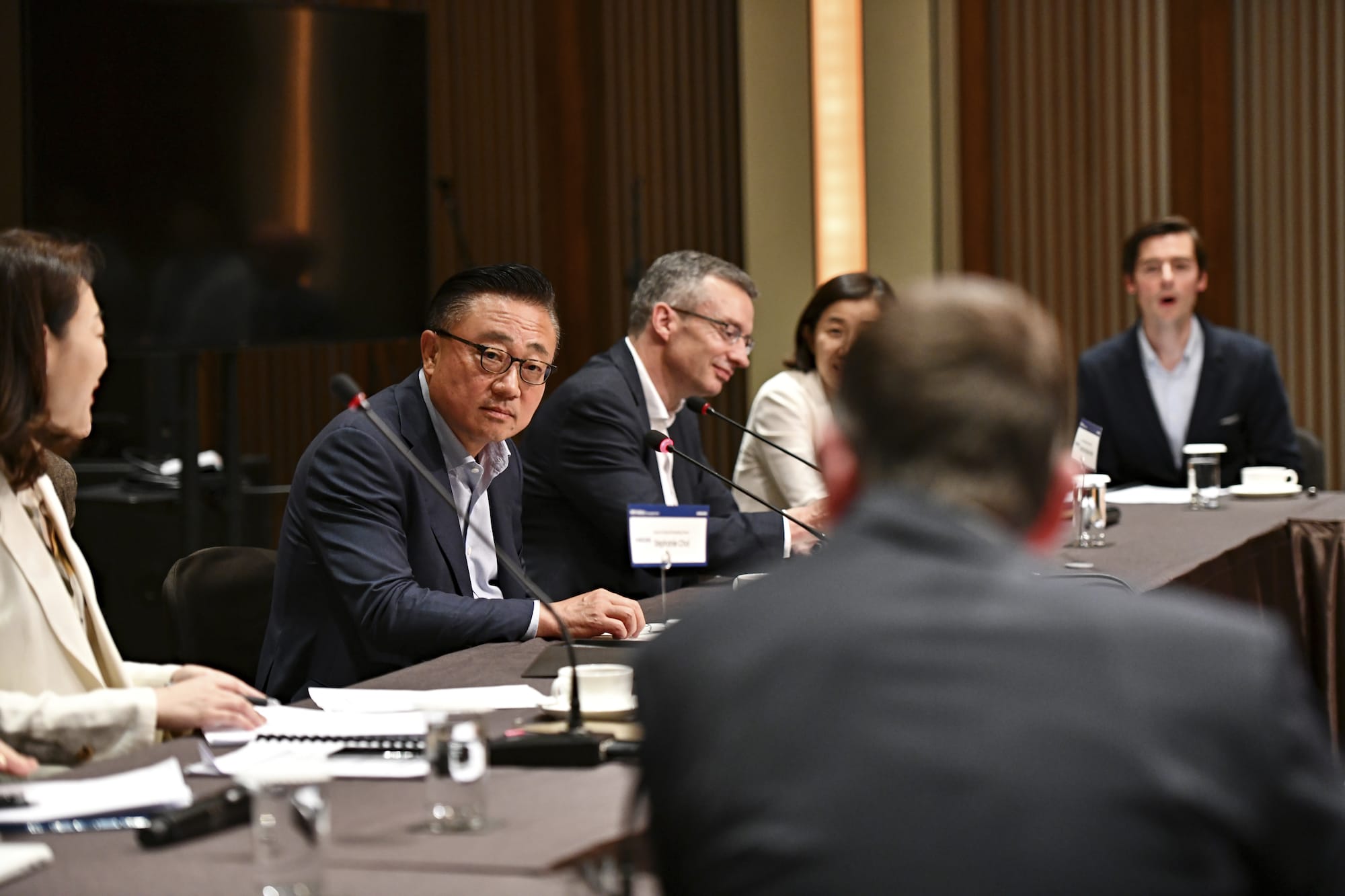
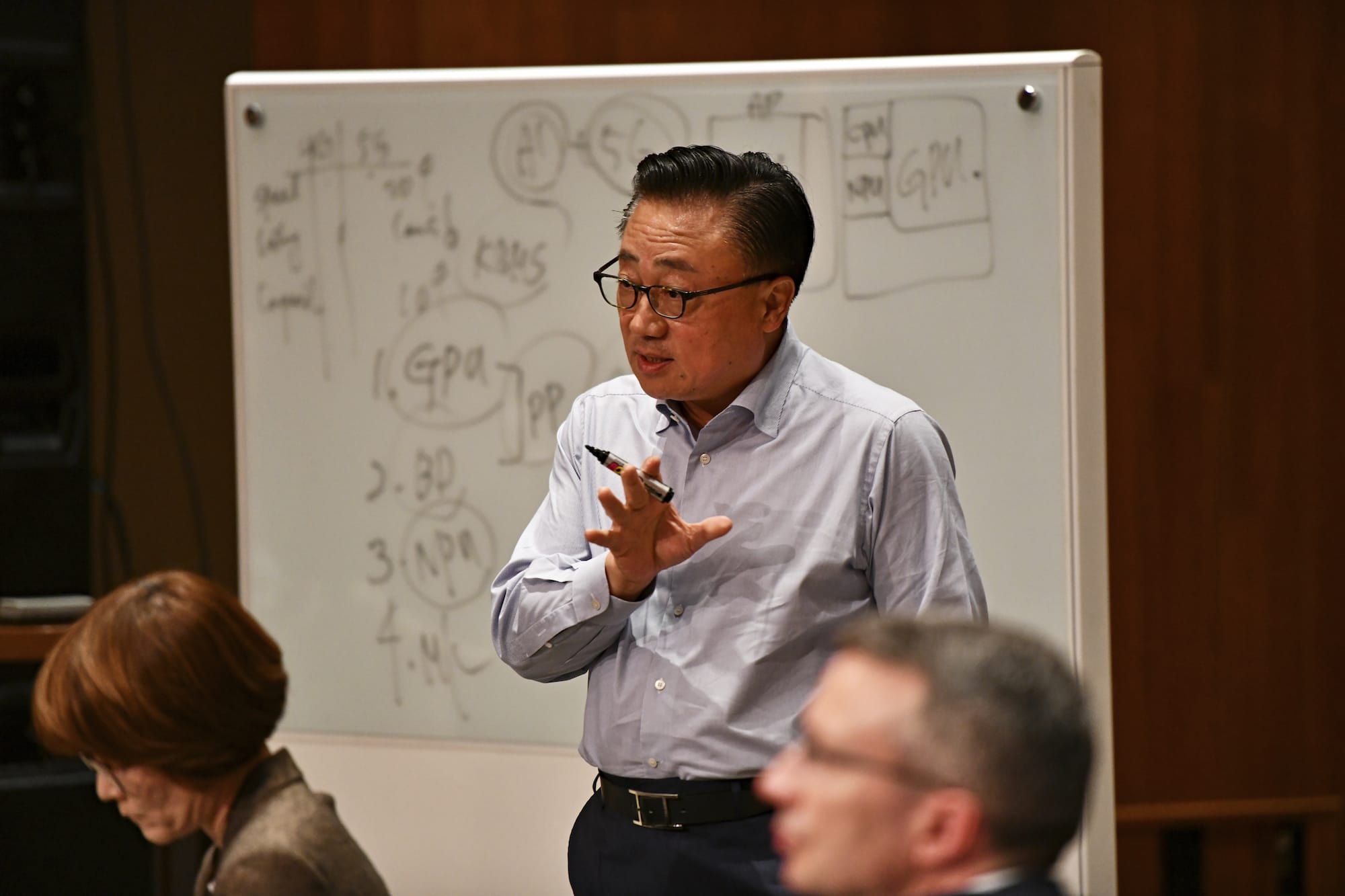
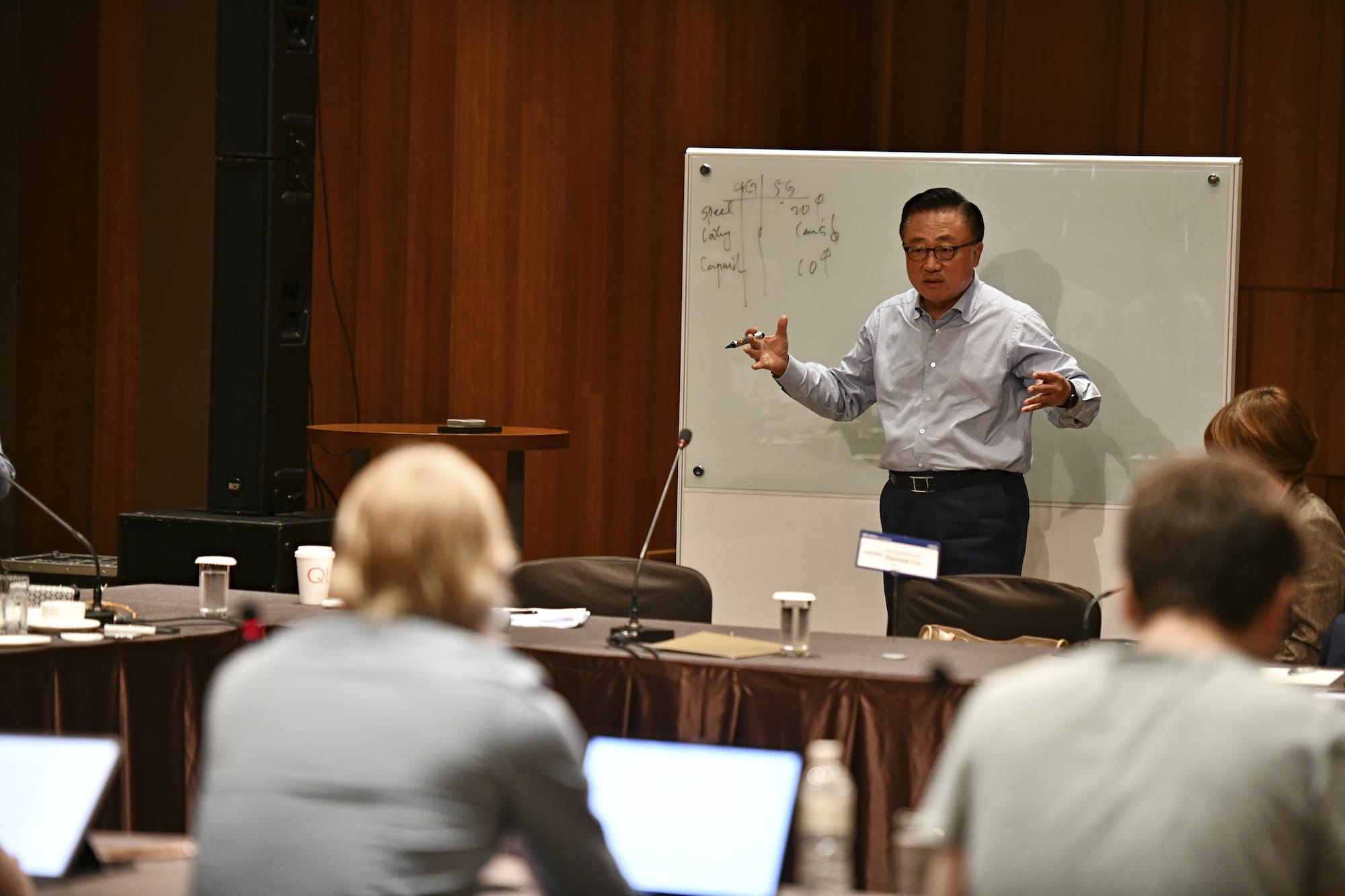
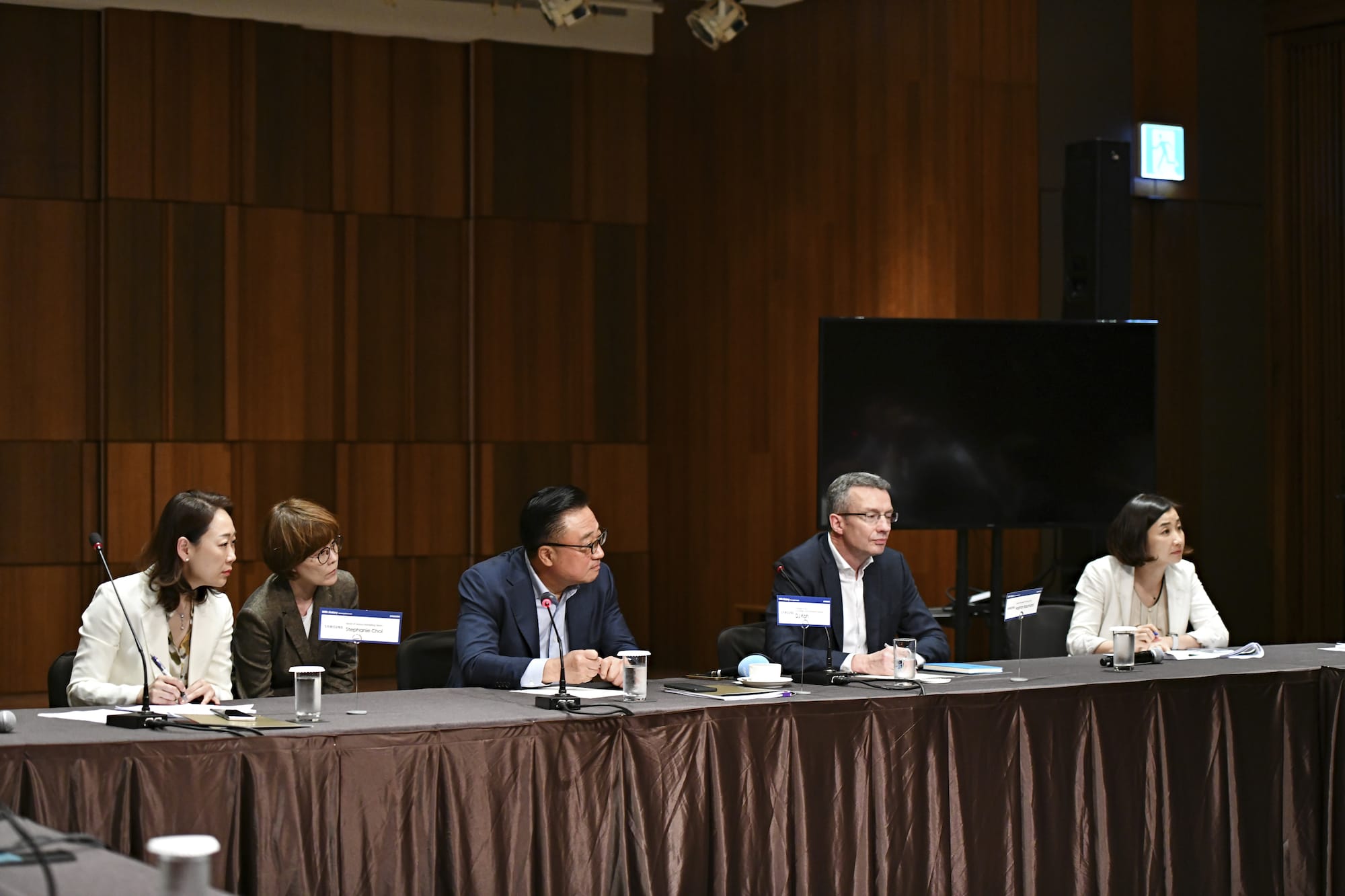
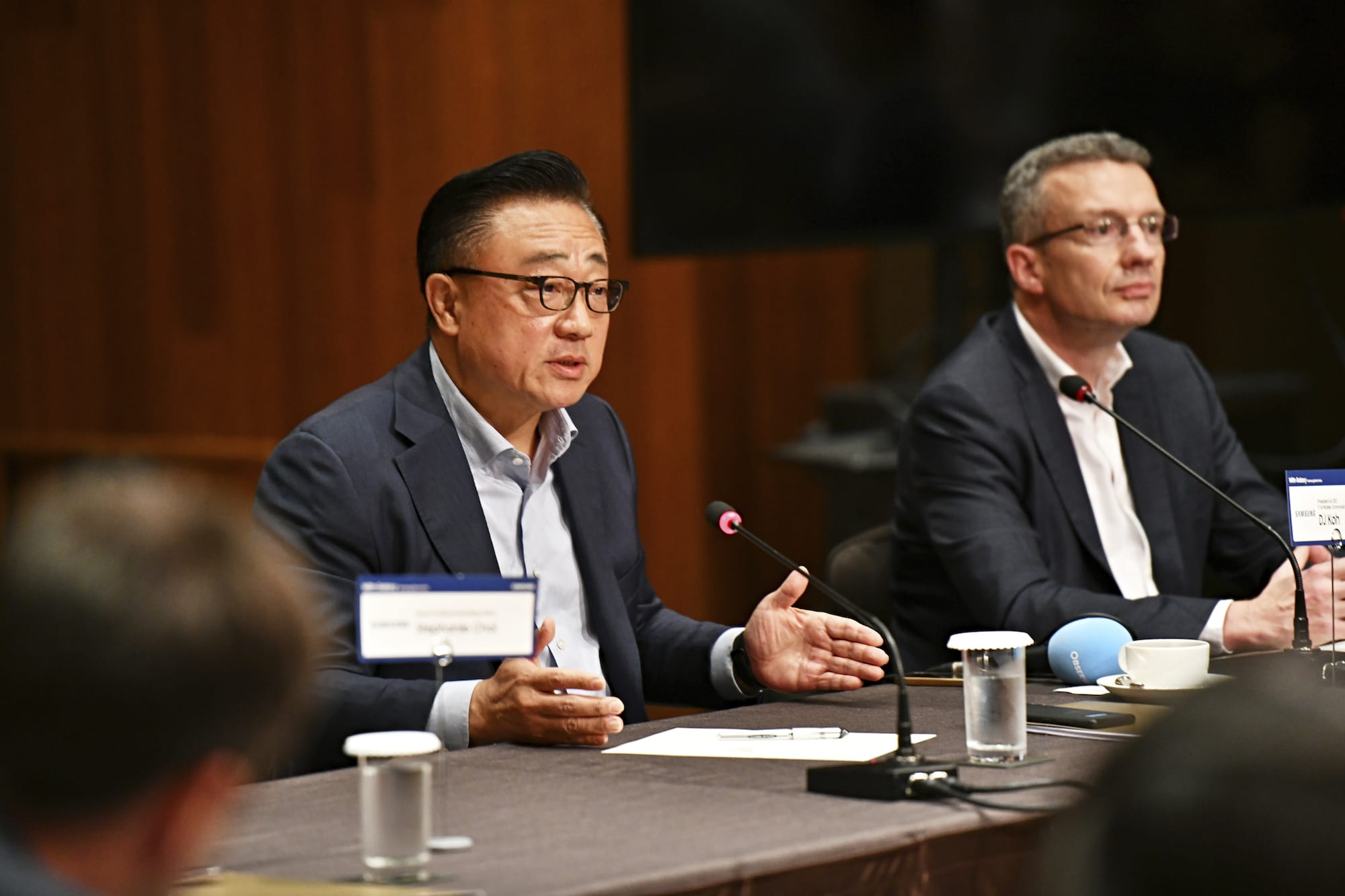
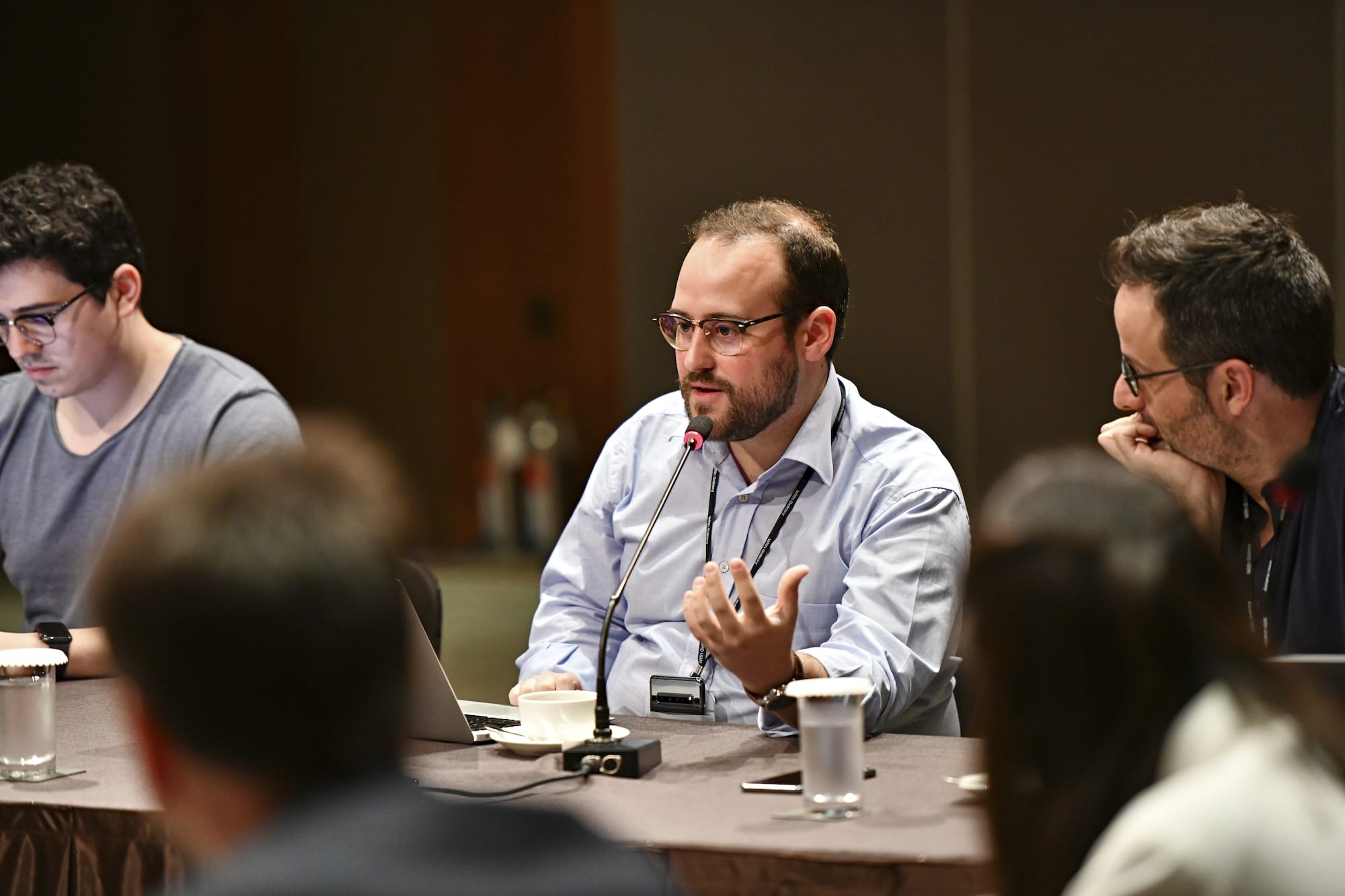
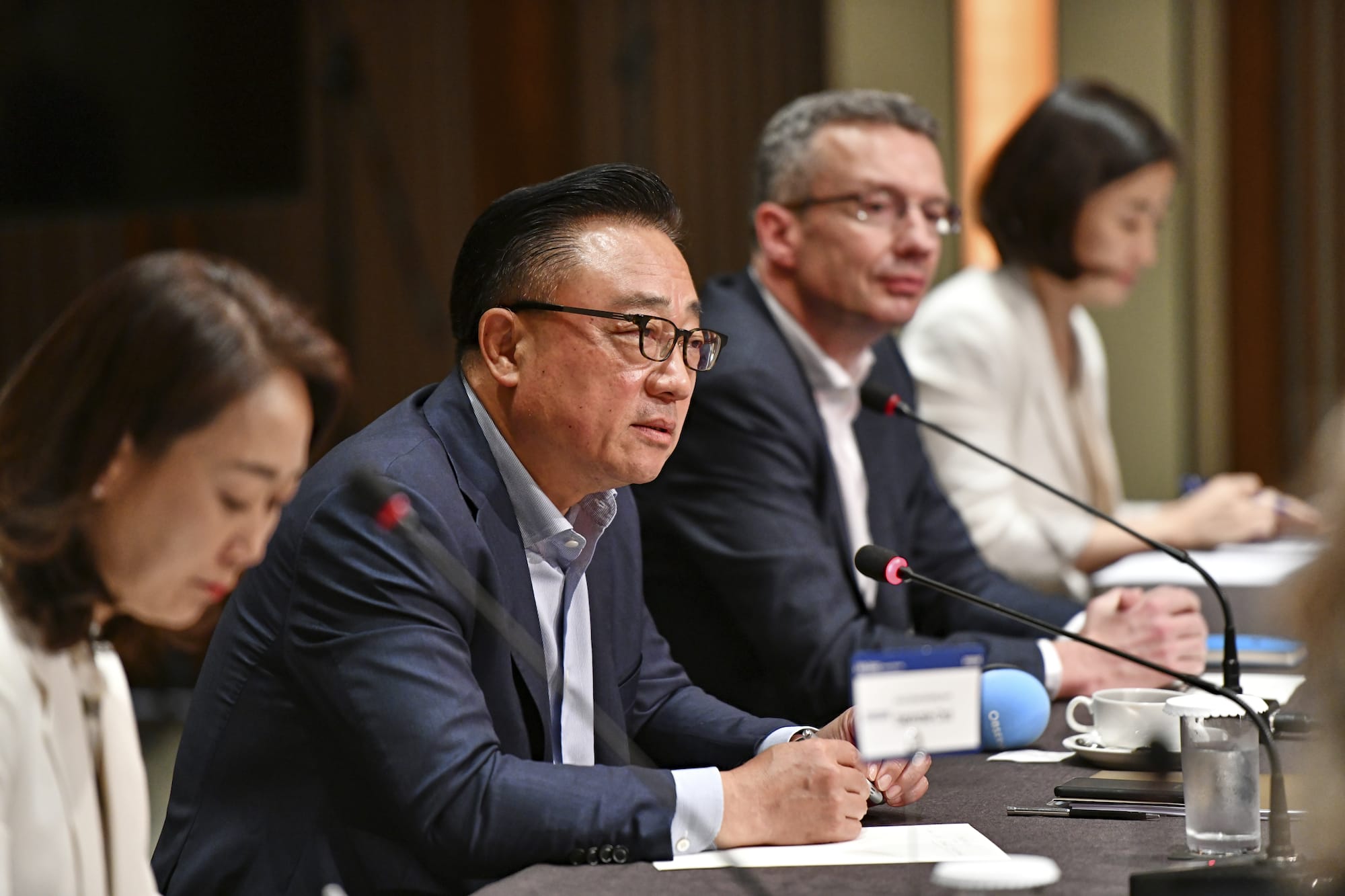
Komentarze: 8
Dzięki.Wiele sie dowiedziałem o 5g w praktyce. Szczególnie jak działa w Polsce ;).
Poki co to ja chce wyciagnac MAKSIMUM speed jaki oferuje przedpotopowy….3G
O co biega?!
5G bedzie ci tylko swiecic na ekranie – a predkosci bedziesz mie MAX jak z 4G
Ide o zaklad 50zl
I tylko nie chce testow “pod publike”
Ile to razy powtarzali ze ten Fold byl ilesSET TYSIECY testowany zginany i co?!?!?! – te ich testy to o D potrzaskac
SZPIEGOWSKIE NACIAGACZE!
cbd oil cbd cigarettes cbd oil cbd oil cbd oil cannabidiol
cbd oil cbd oil best cbd oil cbd oil cbd oil cbd gummies
Dzięki.Wiele sie dowiedziałem o 5g w praktyce. Szczególnie jak działa w Polsce ;).
Poki co to ja chce wyciagnac MAKSIMUM speed jaki oferuje przedpotopowy….3G
O co biega?!
5G bedzie ci tylko swiecic na ekranie – a predkosci bedziesz mie MAX jak z 4G
Ide o zaklad 50zl
I tylko nie chce testow „pod publike”
Ile to razy powtarzali ze ten Fold byl ilesSET TYSIECY testowany zginany i co?!?!?! – te ich testy to o D potrzaskac
SZPIEGOWSKIE NACIAGACZE!
cbd oil cbd cigarettes cbd oil cbd oil cbd oil cannabidiol
cbd oil cbd oil best cbd oil cbd oil cbd oil cbd gummies